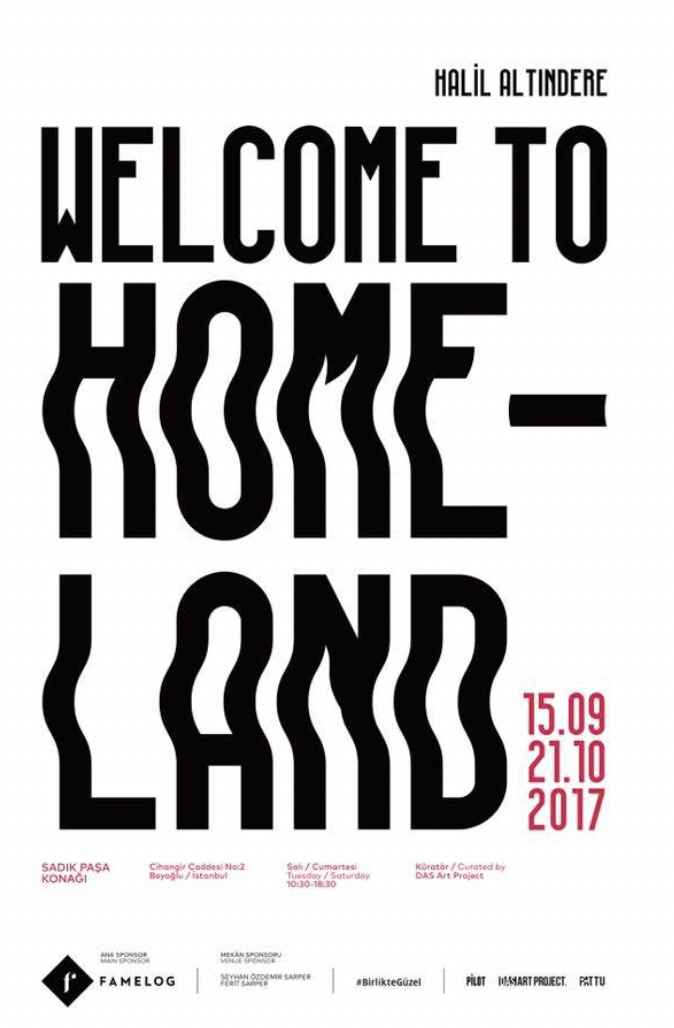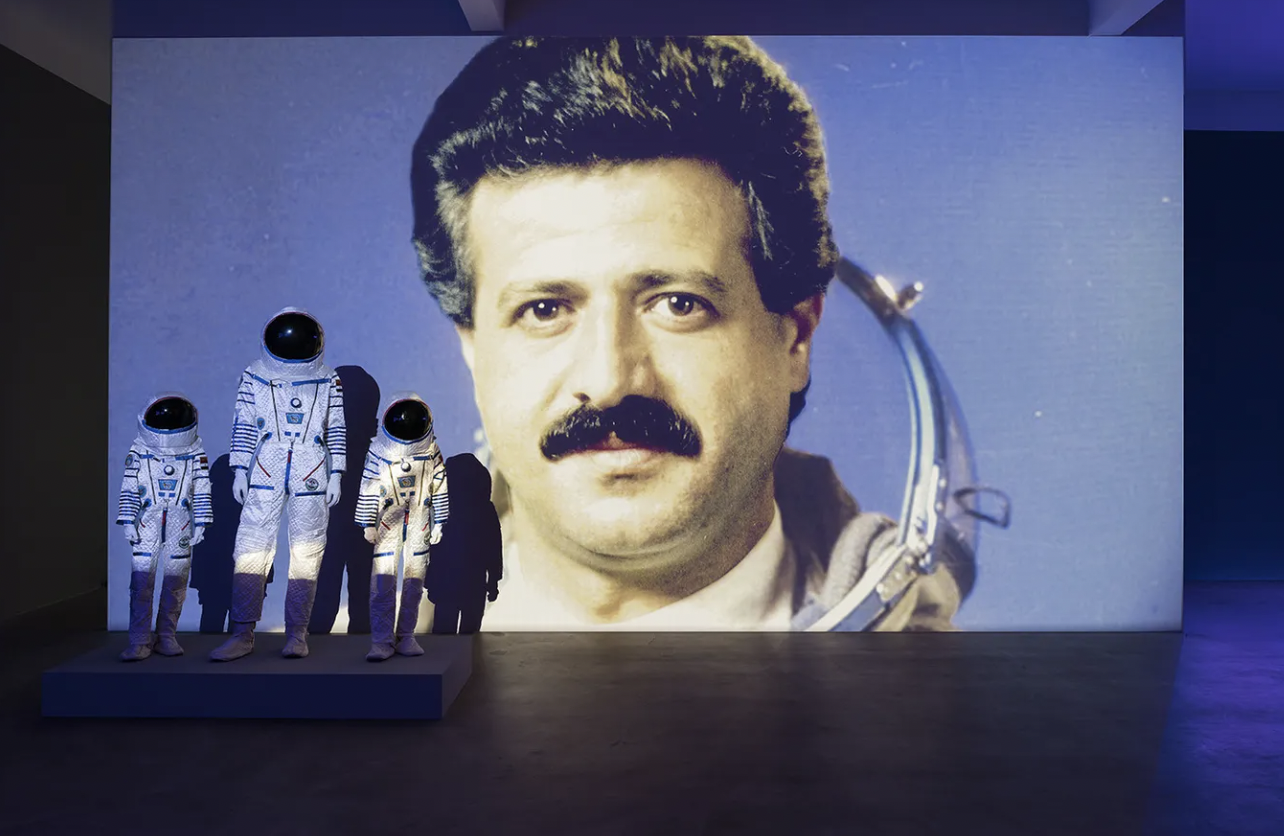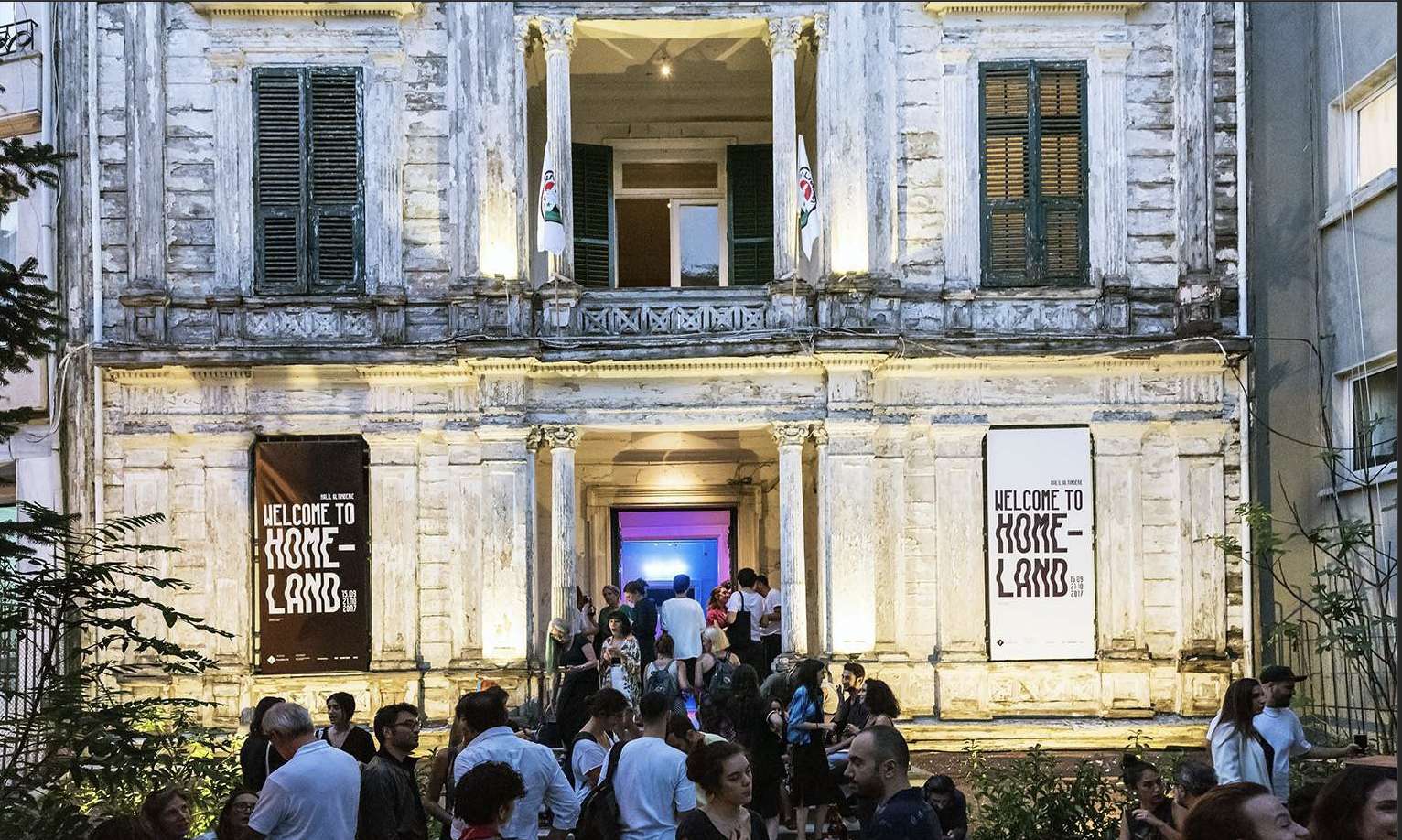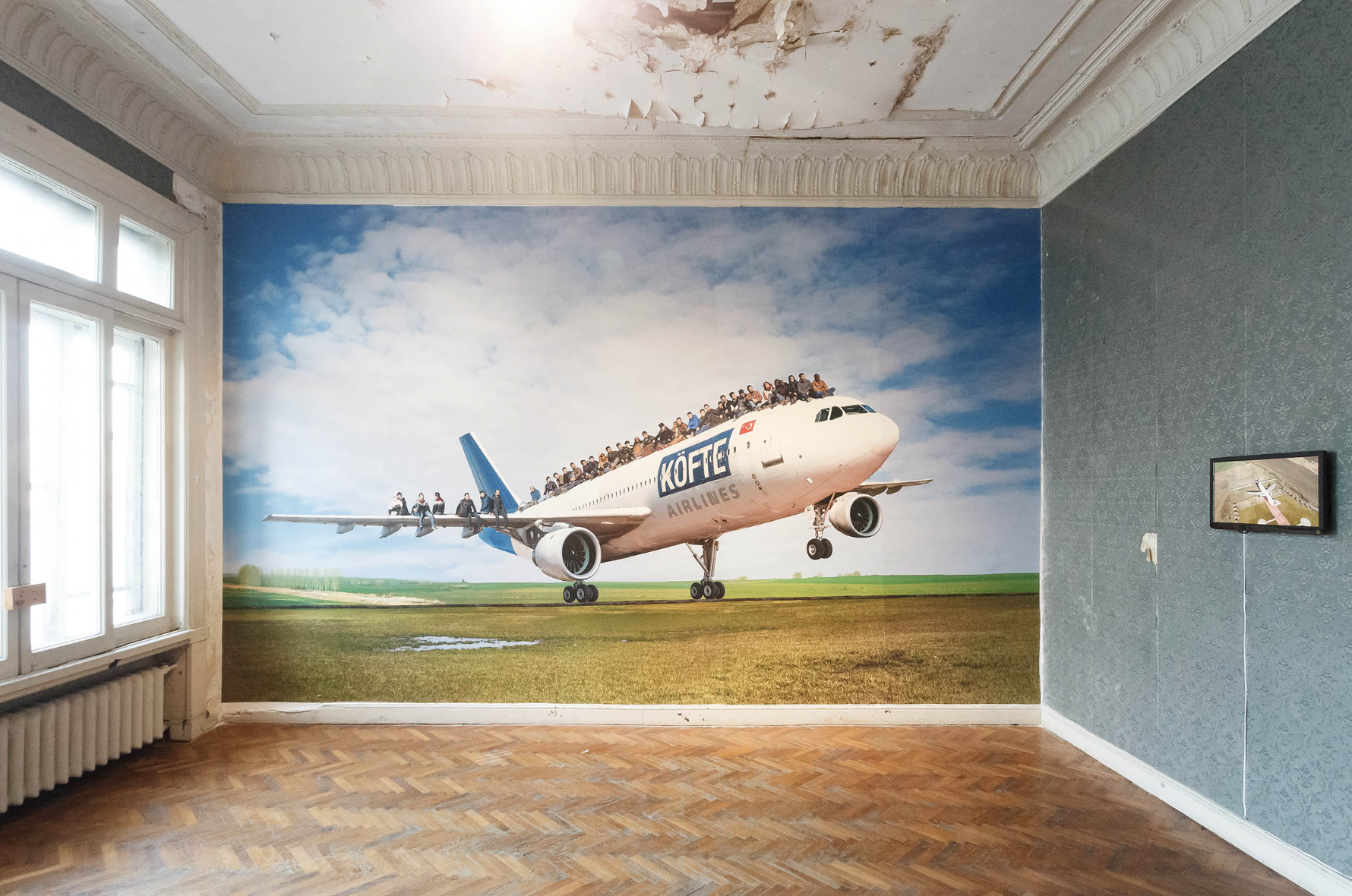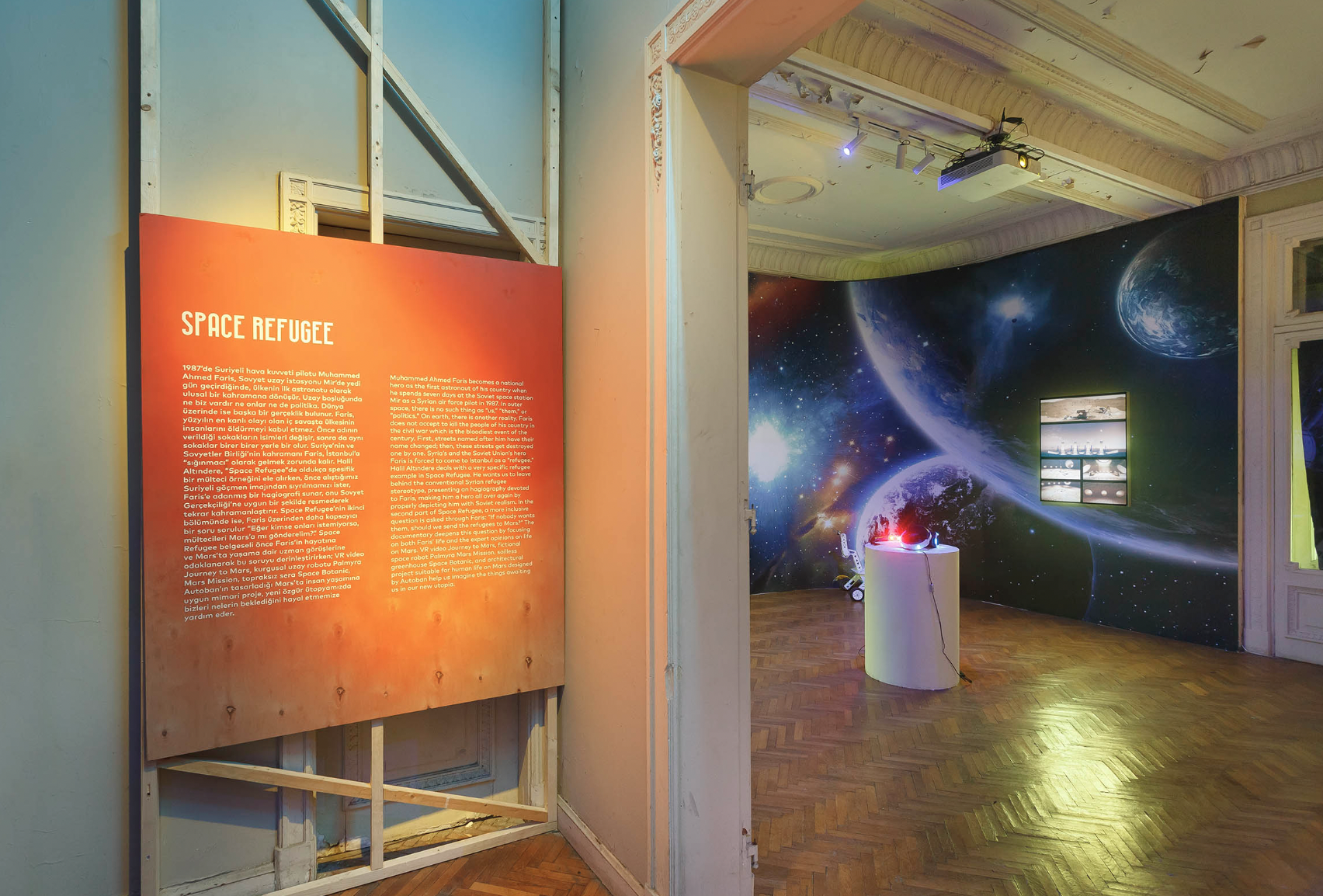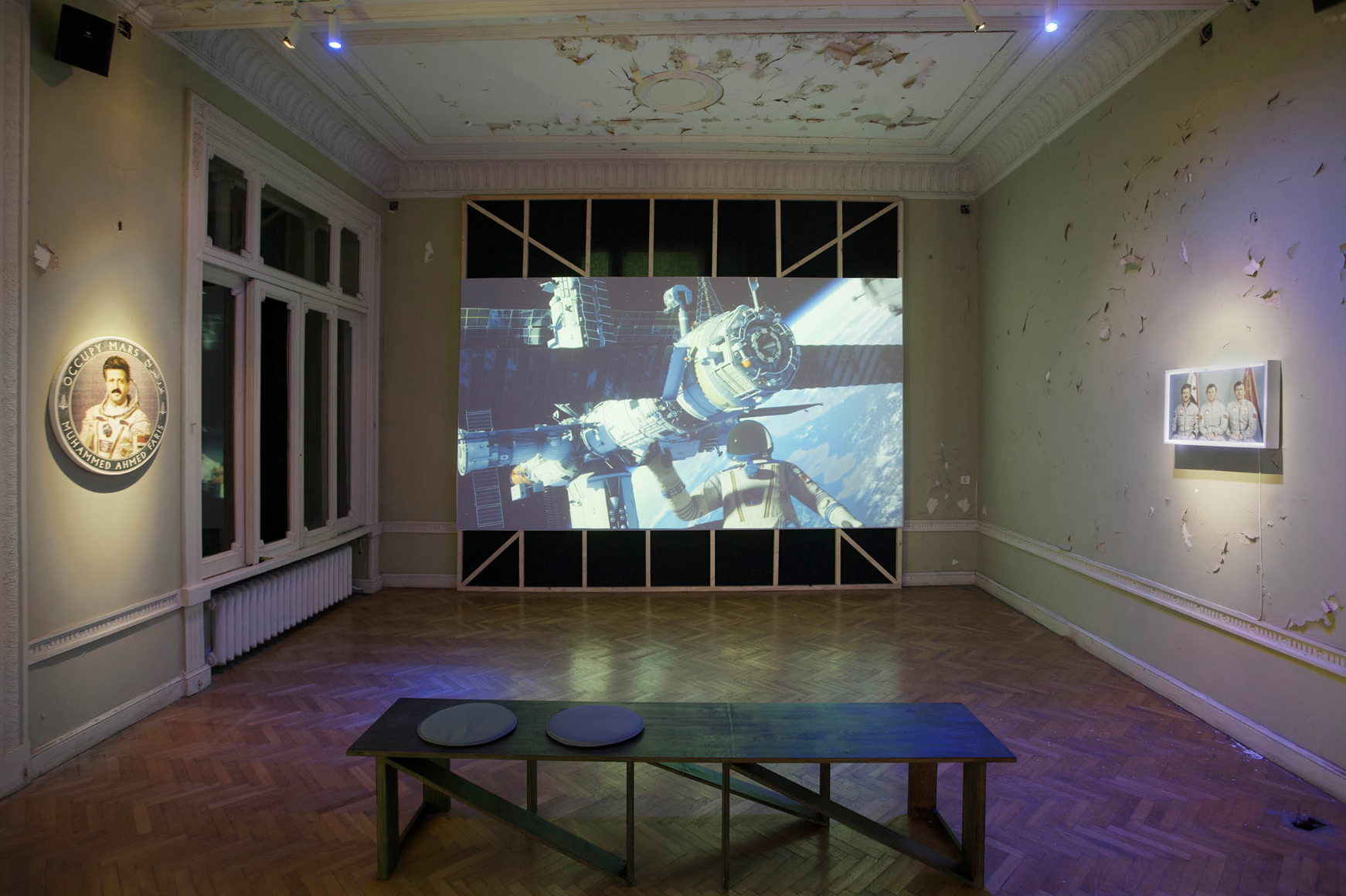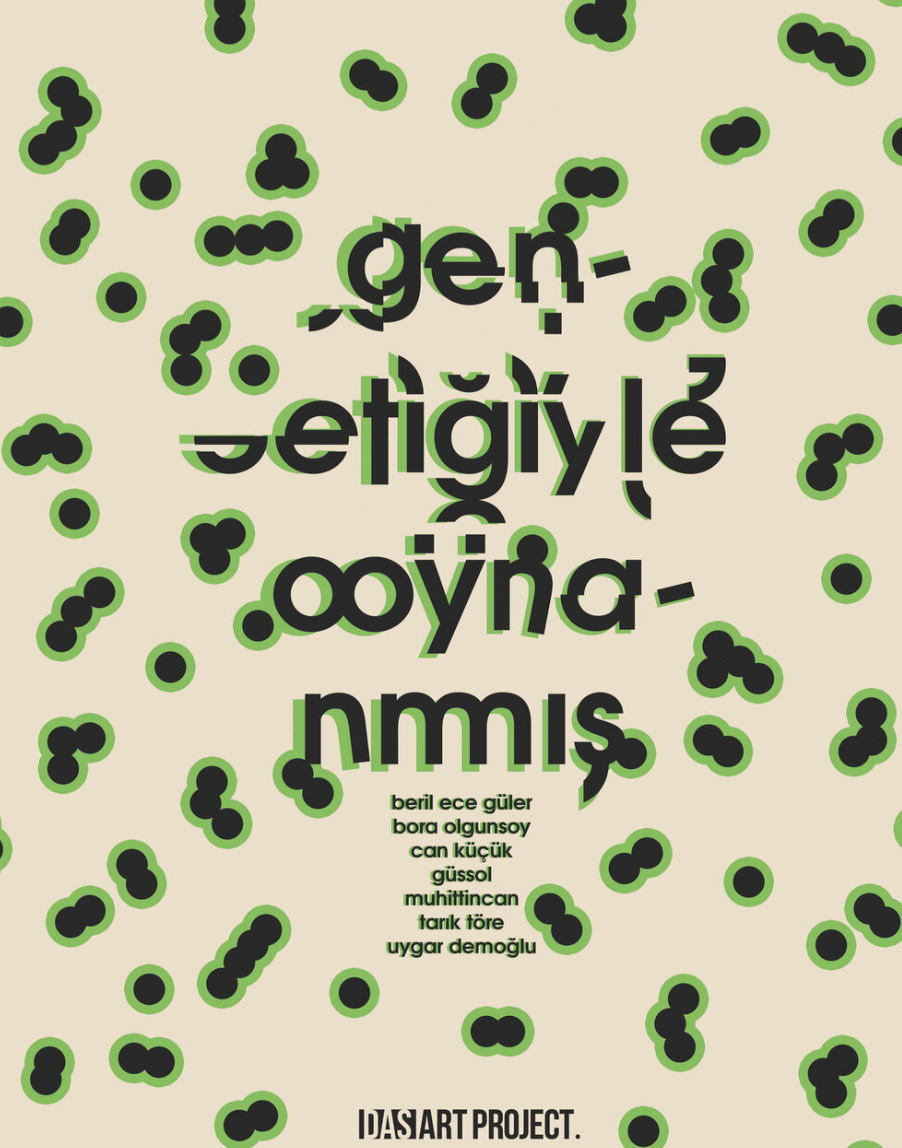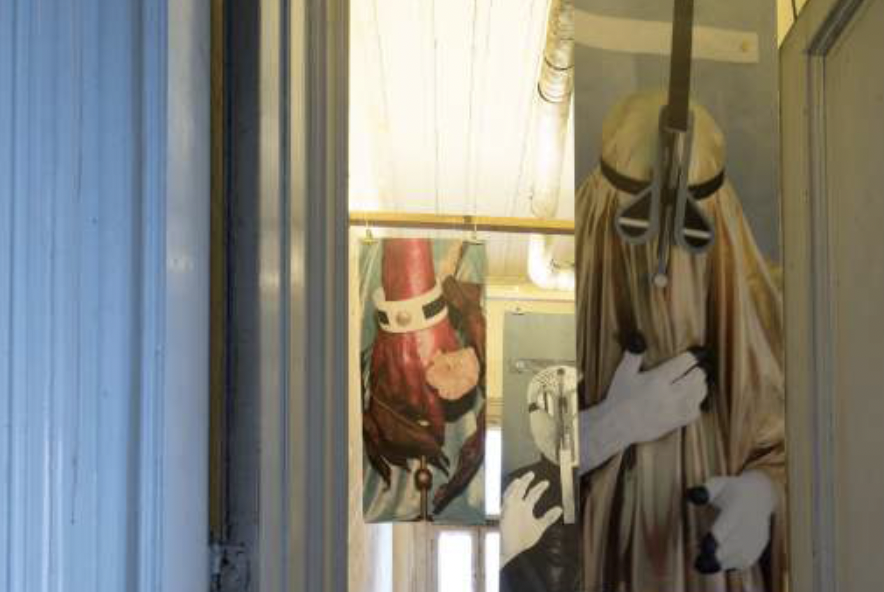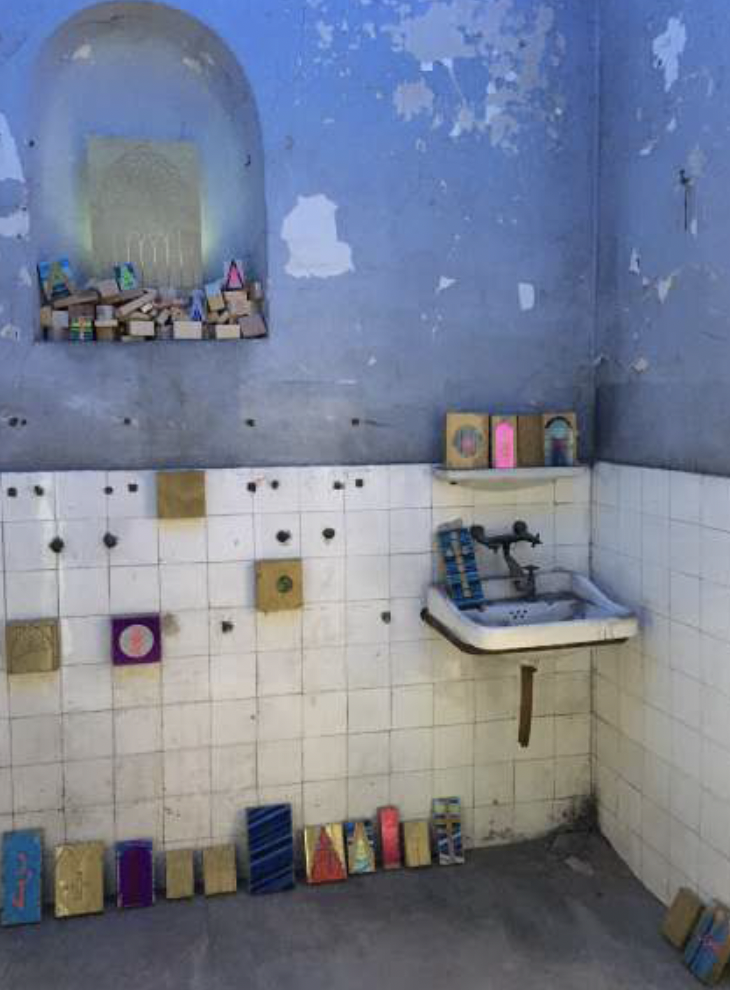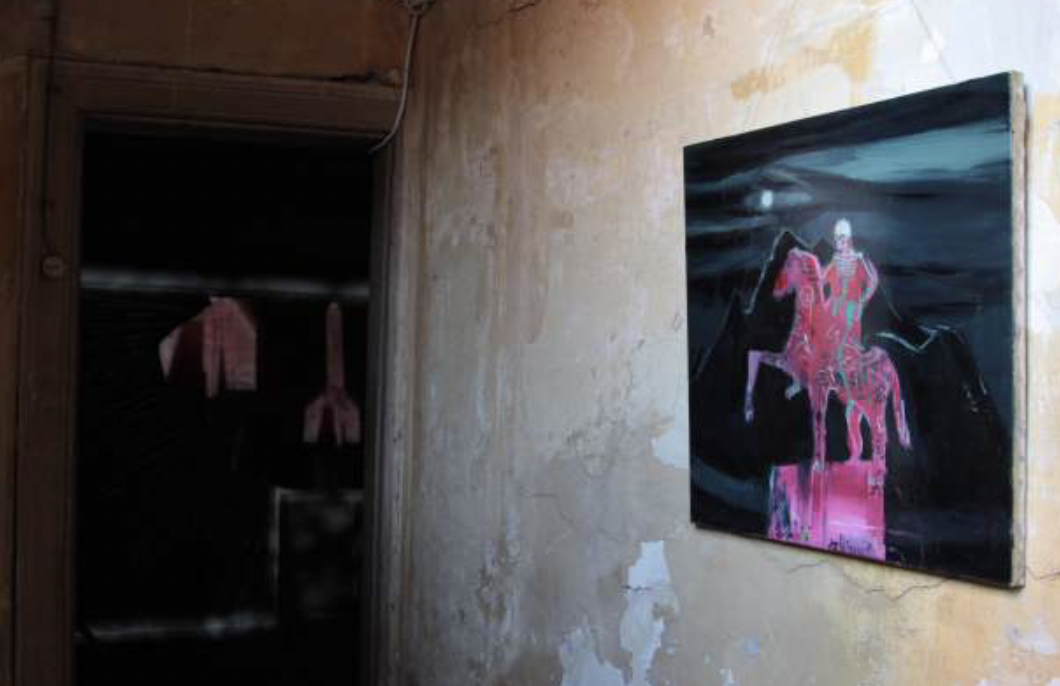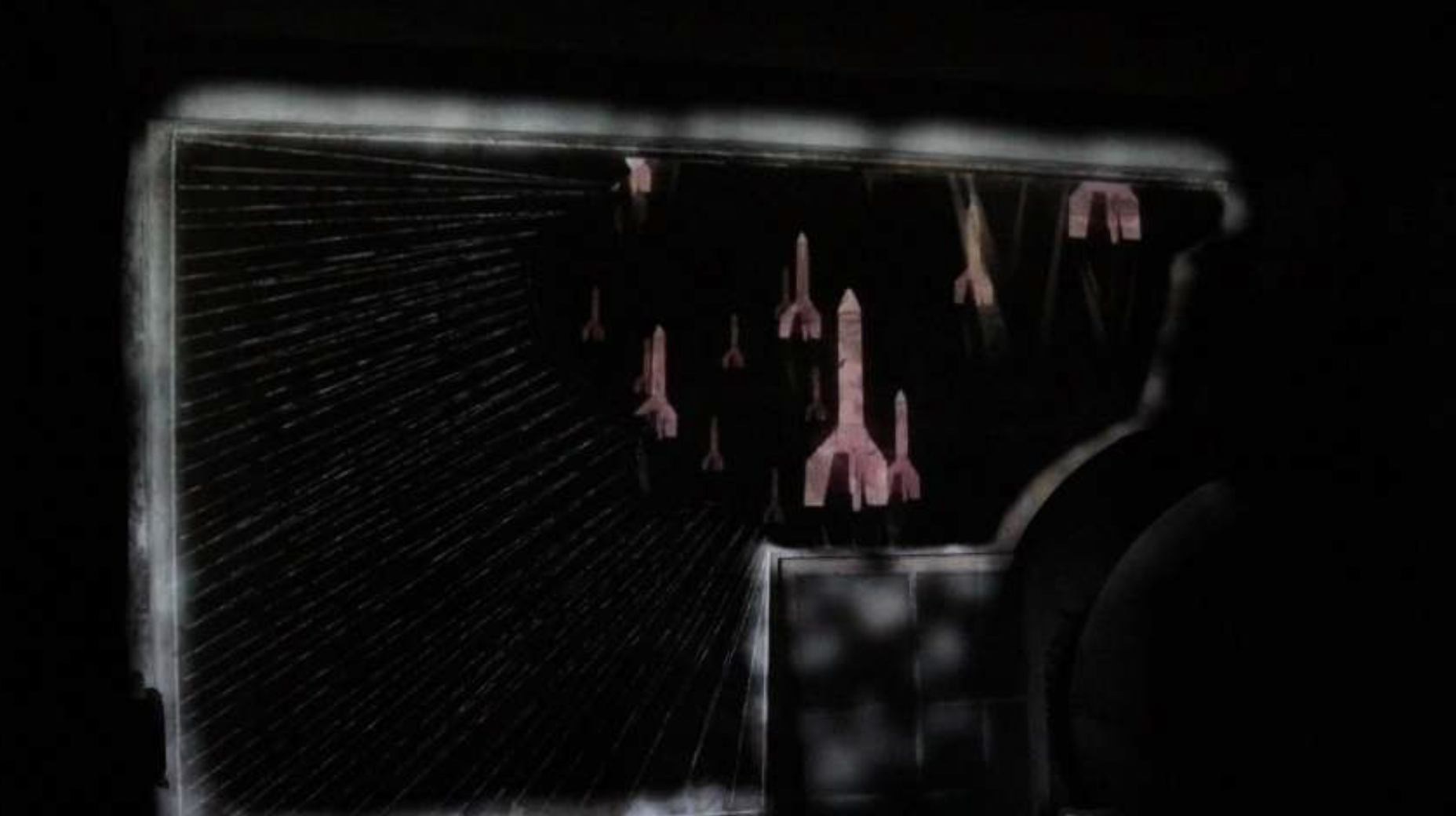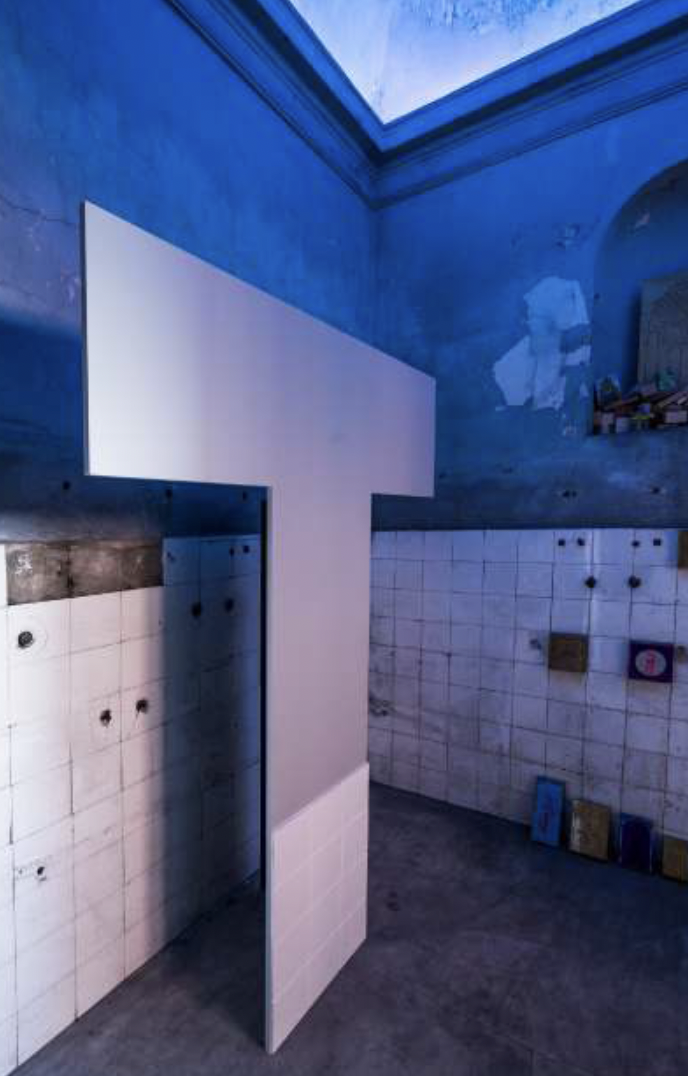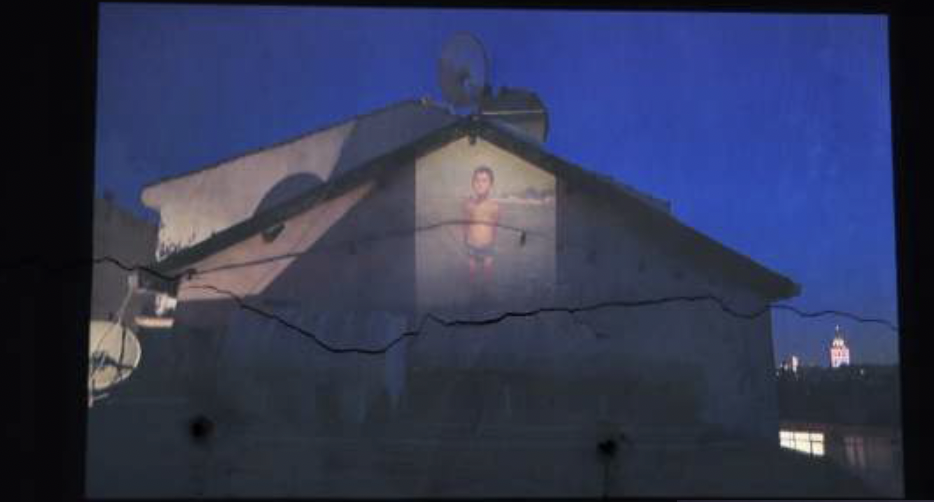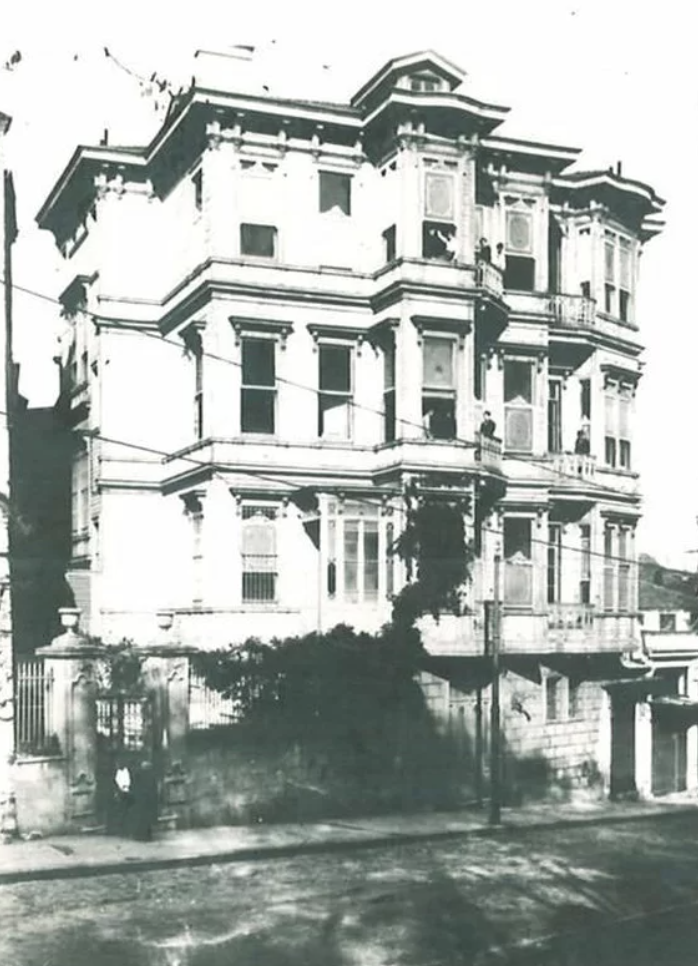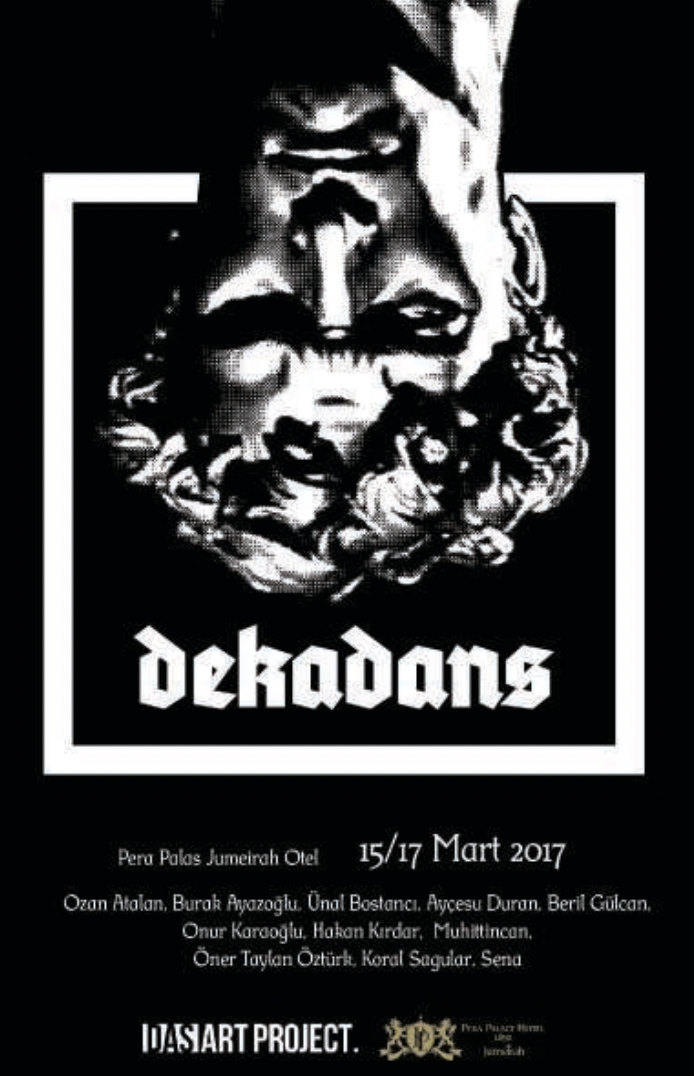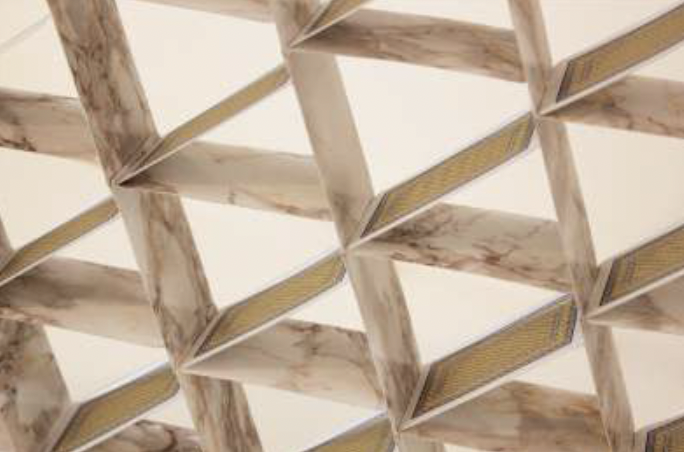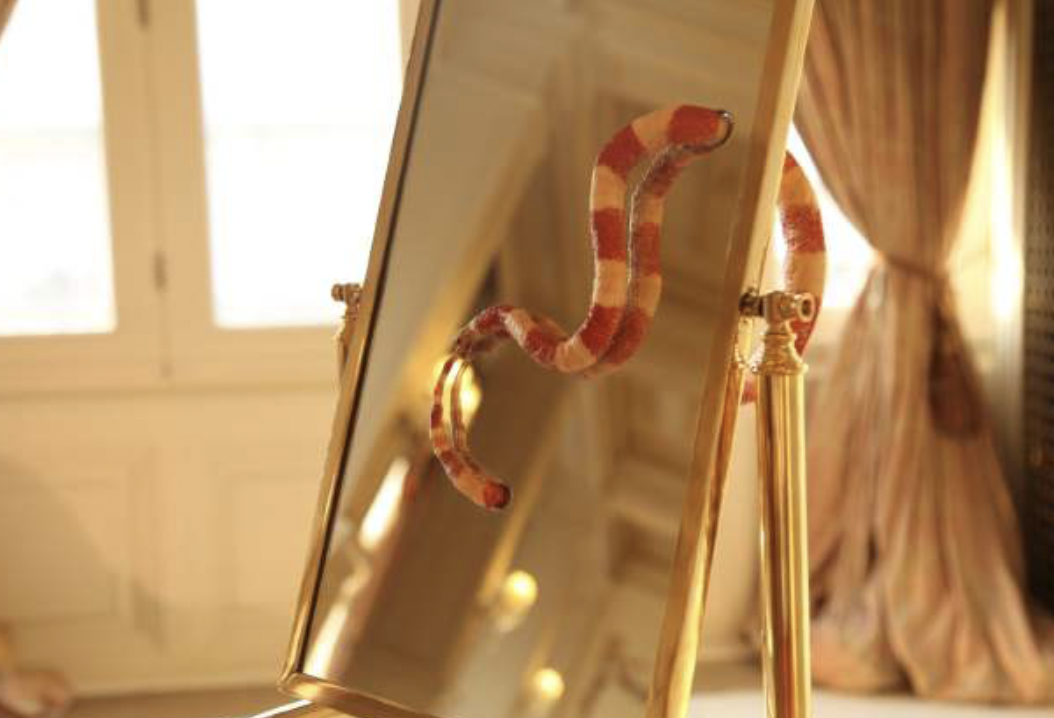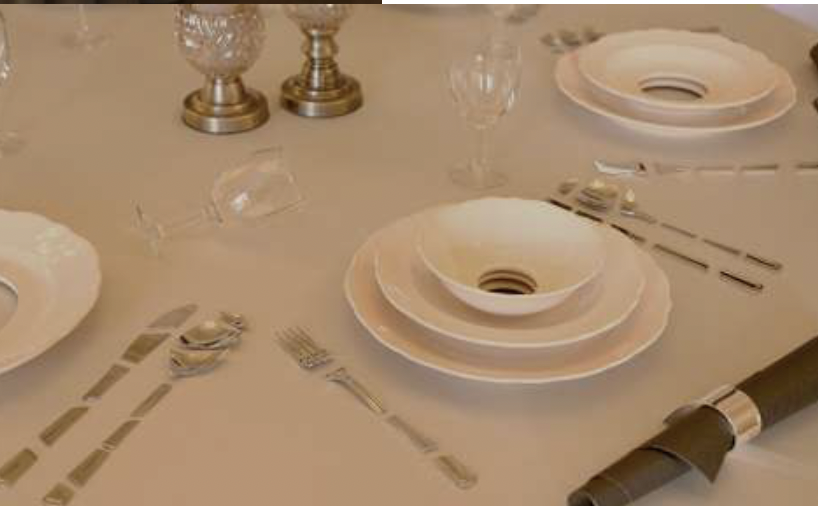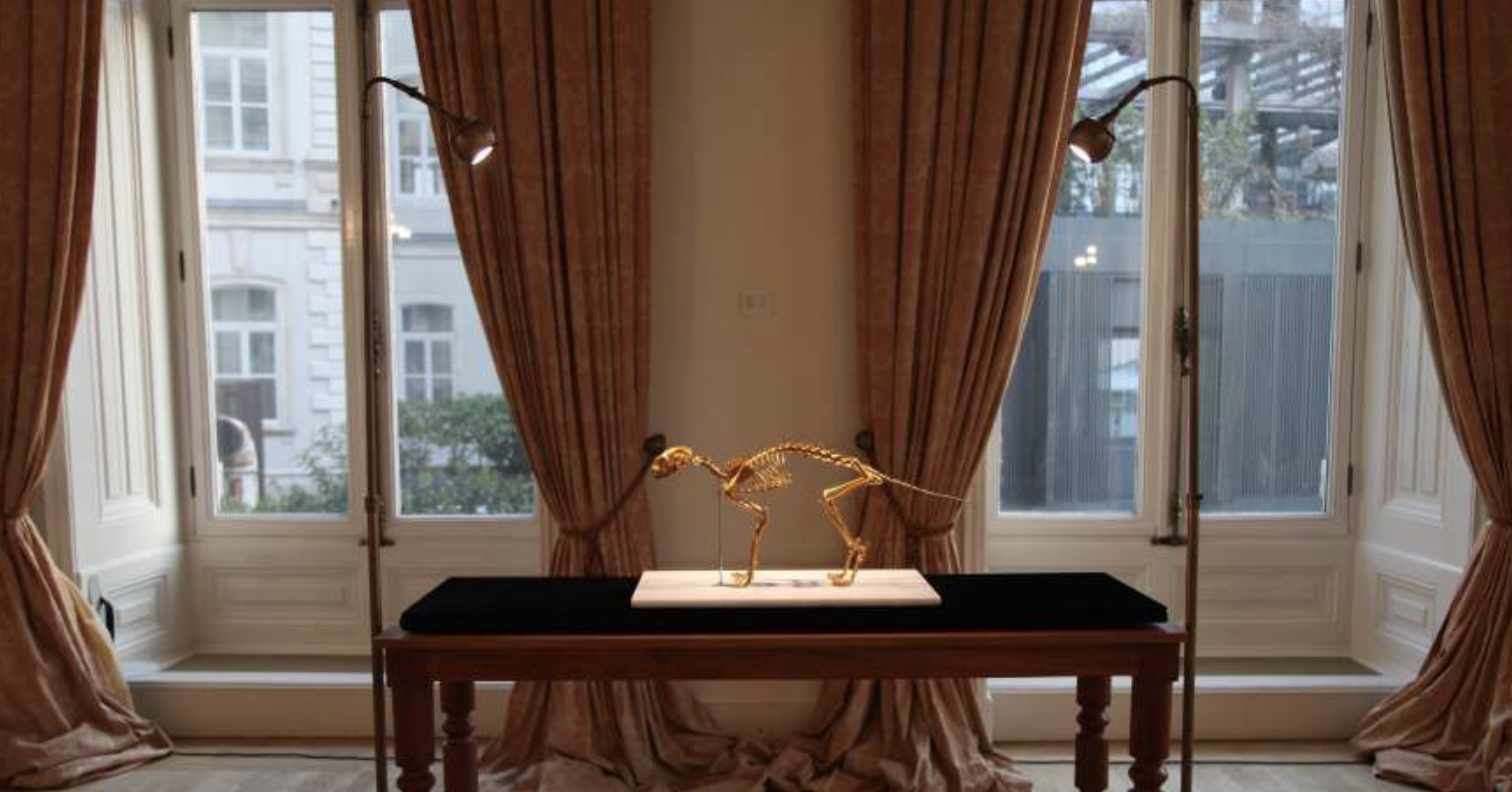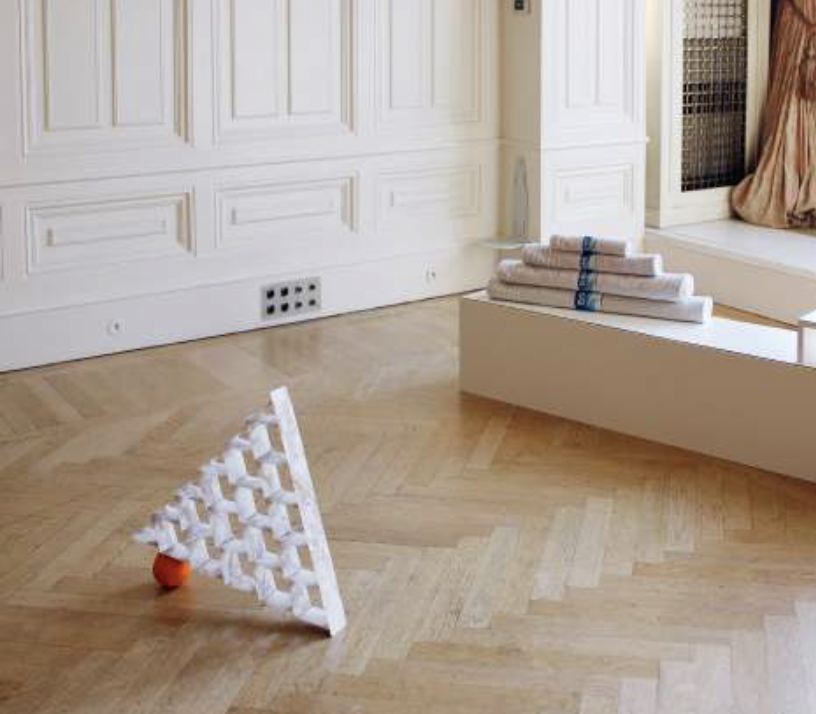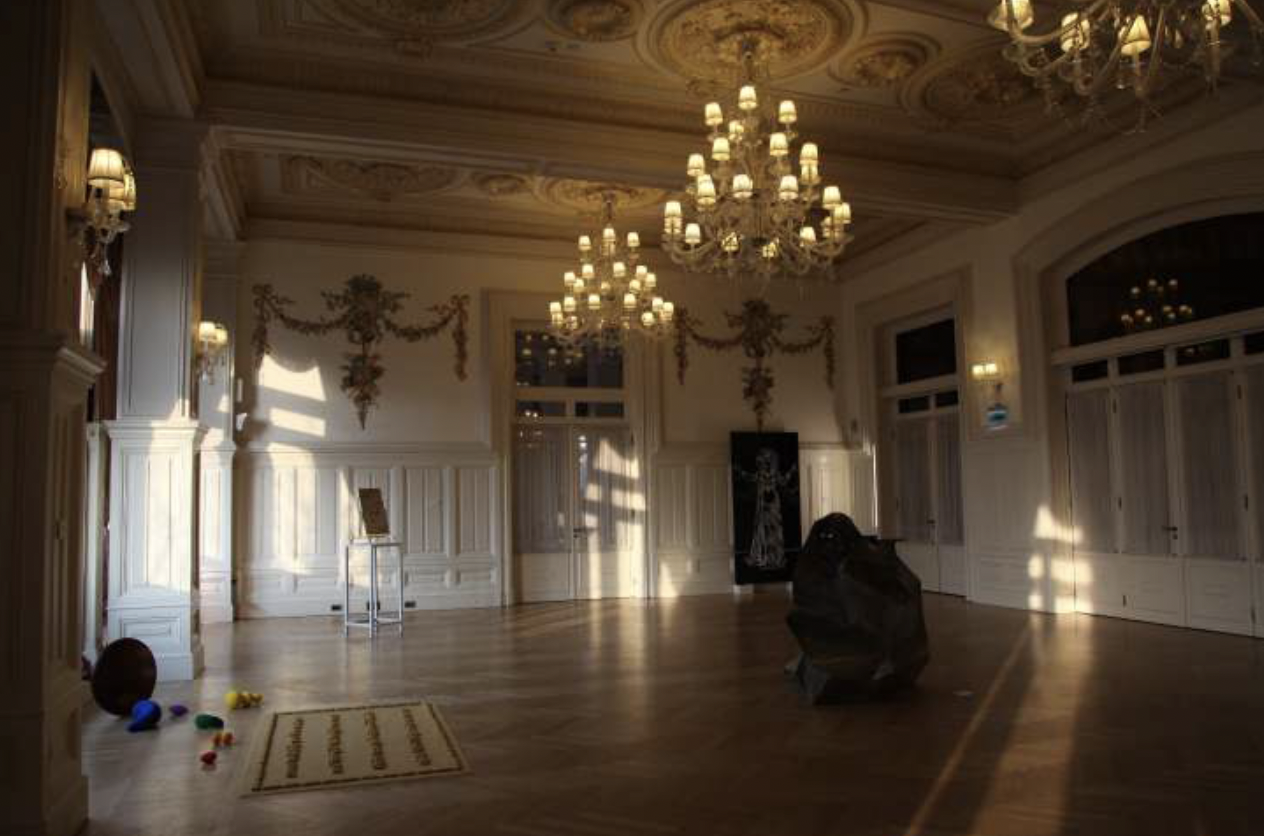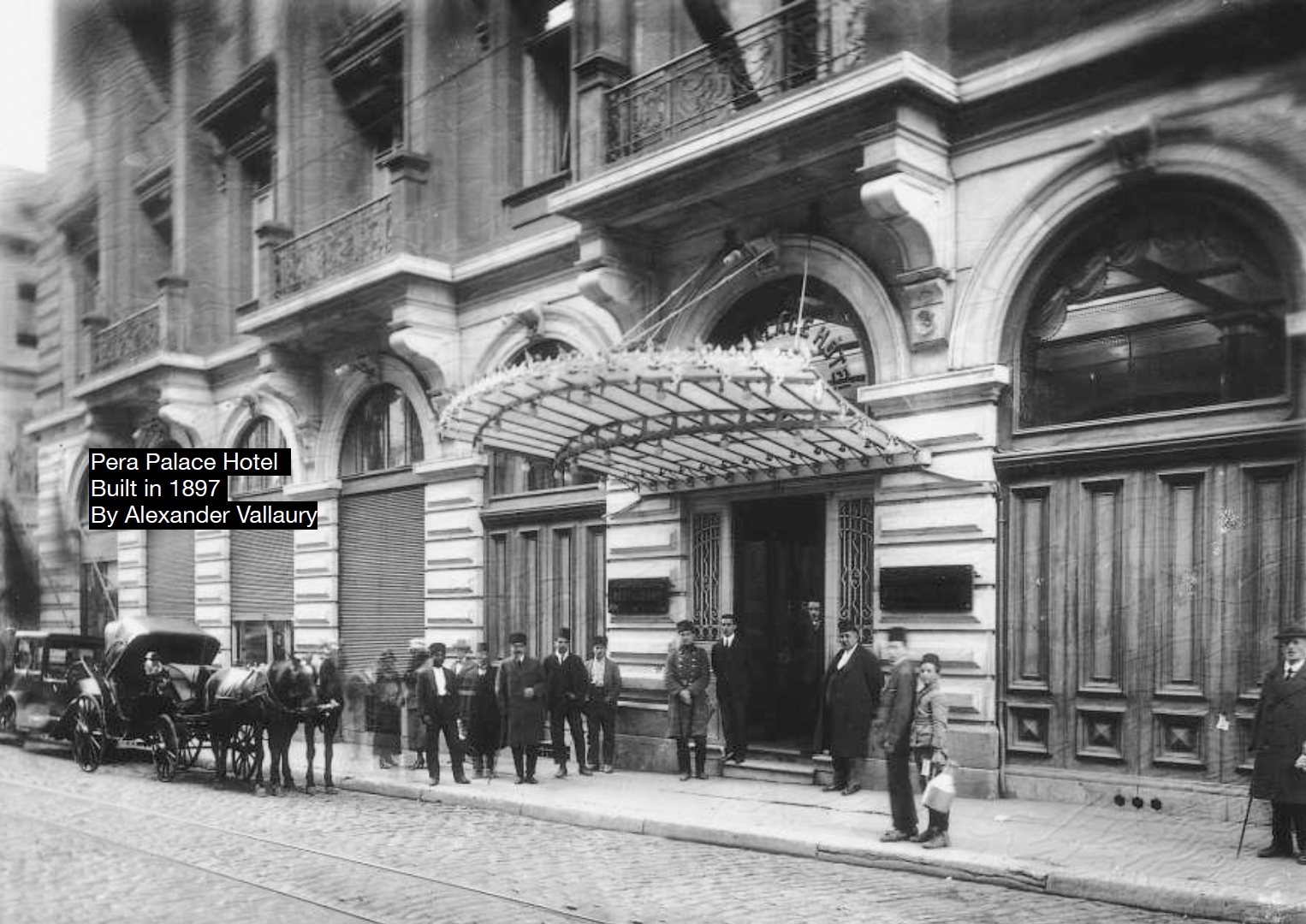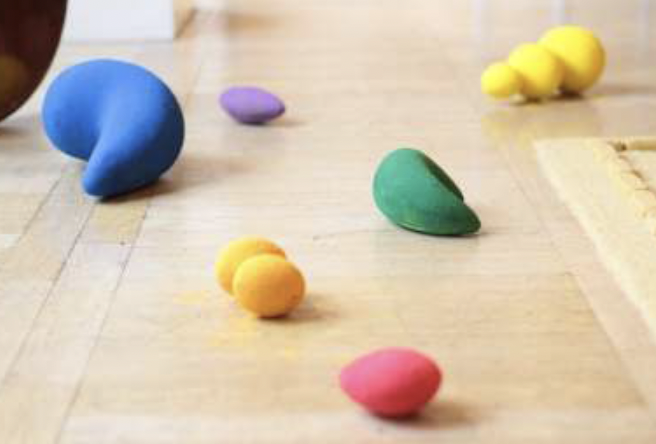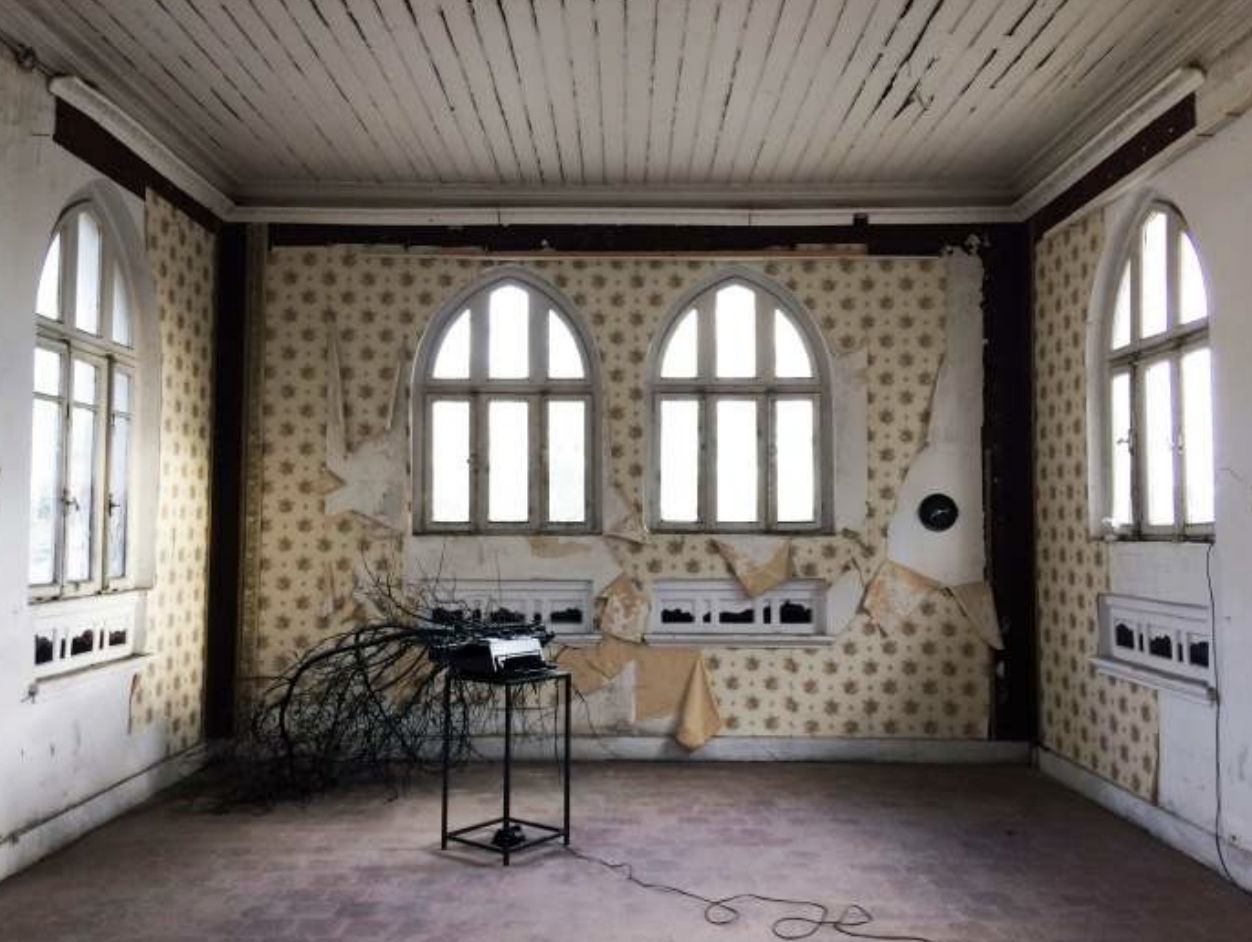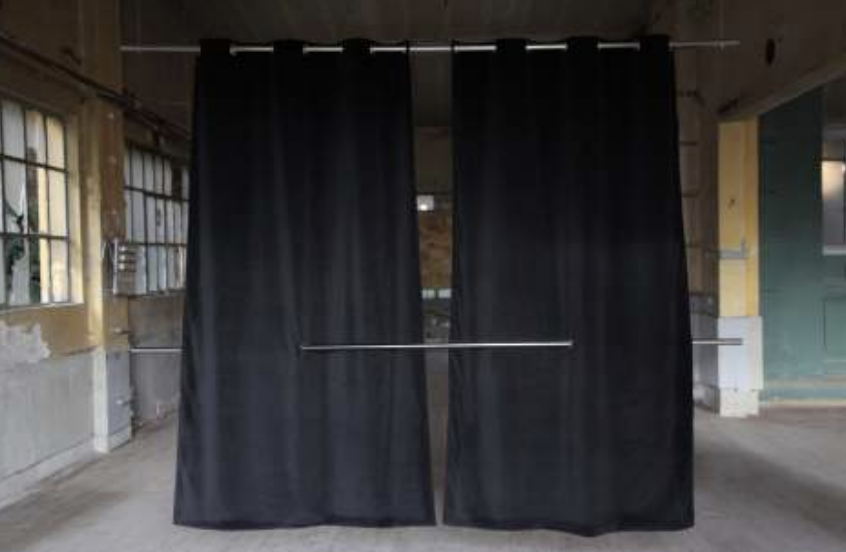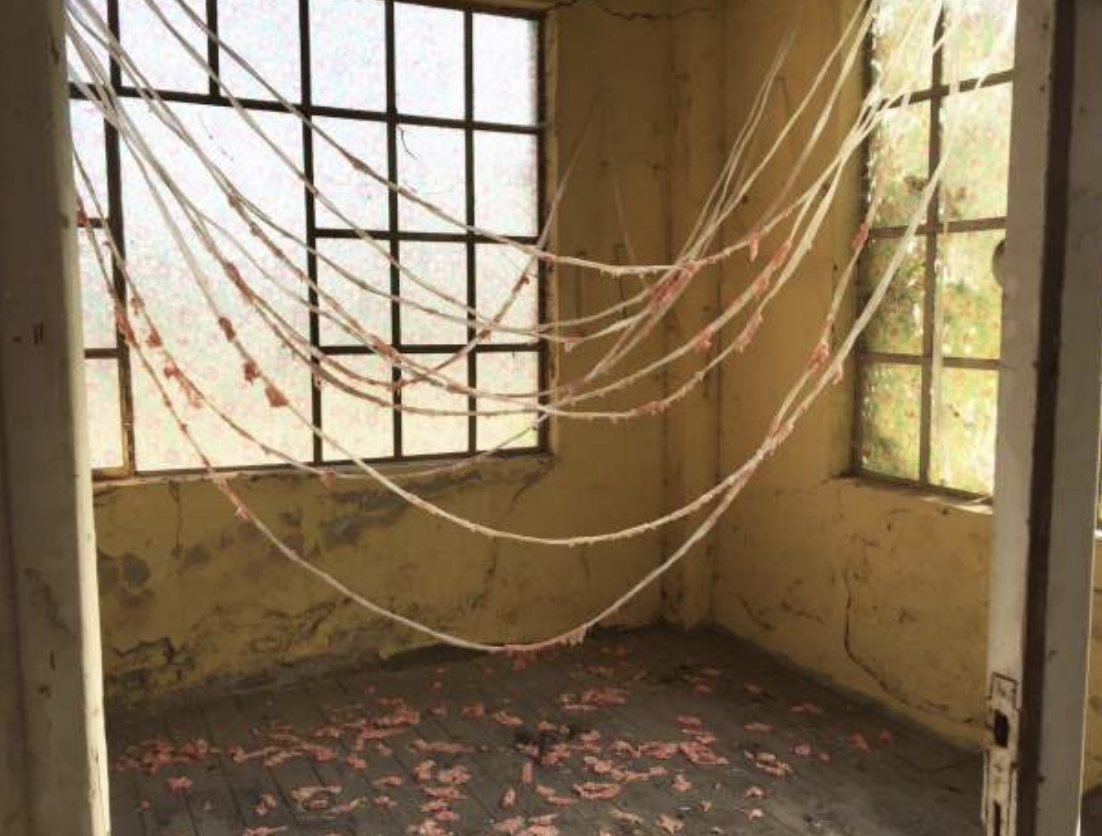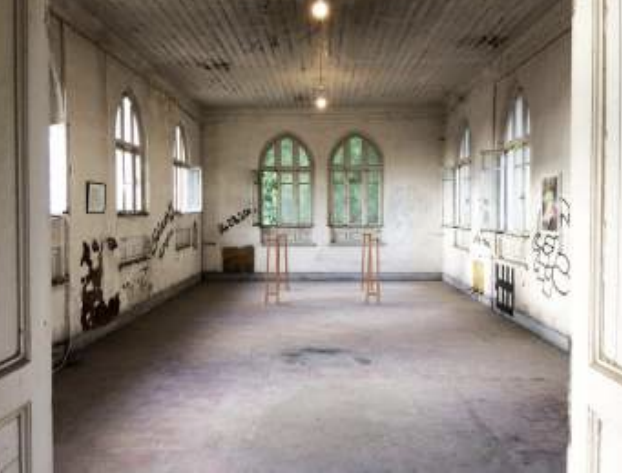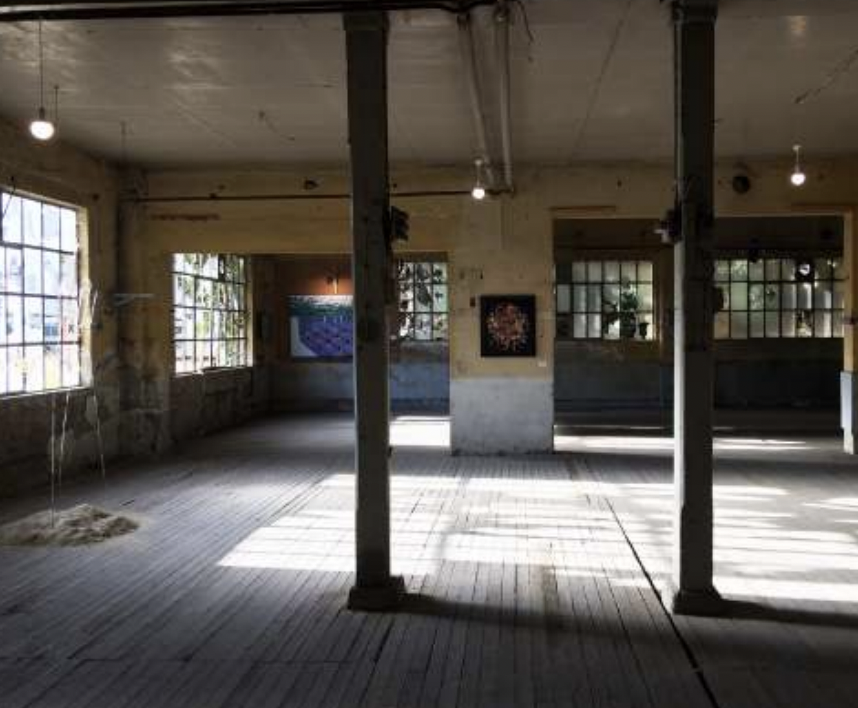commissioned,
collaborated
or contracted projects
STRÜKTÜR
Co-founderSTRÜKTÜR is a Berlin-based association dedicated to forming and expanding the support structures for arts & artists from the geography of Turkey. Its mission lies at the heart of the collective production of migratory and diasporic knowledge and the creation of trans-communal exchange. Through residencies, publications, workshops, and public programs; STRÜKTÜR aims to root, grow, and disperse artistic
research and diasporic thinking transcending borders, communities, and generations.
Founded by
Bengisu Çağlayan
Gözde Gazioğlu (Chair, Board Member)
Yelta Köm
Hatice Marx (Board Member)
Tuna Ortaylı Kazıcı (Treasurer, Board Member)
Vivien Tauchmann
Alper Turan
Prof. Dr. Füsun Türetken (Chair, Board Member)
https://struektuer.org/
SELF-ORIENTATIONS
Arteeast & Columbia University’s Wallach Gallery
Screening: Saturday, January 13 at 3:00pm
Katarina Otto-Bernstein Screening Room, Lenfest Center for the Arts
615 West 129th Street, NY NY 10027
Presented by ArteEast in collaboration with the Columbia University’s Wallach Art Gallery in conjunction with the exhibition, Partisans of the Nude: An Arab Art Genre in an Era of Contest, 1920-1960 curated by Kirsten Scheid.
SELF-ORIENTATIONS brings together artists from Turkey and Lebanon whose moving image works incorporate queer & feminist self-makings using, manipulating, and correcting the orientalist gaze, voluptuous fantasies, and perennial expectations from the oriental other. Curated by Alper Turan and conceived within the Partisans of the Nude: An Arab Art Genre in an Era of Contest, 1920 -1960 exhibition, SELF-ORIENTATIONS includes artists’ video, documentary, essay film, performance documentation, and desktop film by İz Öztat & Ra, Deniz Pasha, Şükran Moral, Nadir Sönmez, Ardıl Yalınkılıç and Akram Zaatari. This screening program flips the oriental lens reduced to passive imagery and objectification, bringing forth fervent narratives of libidinal energies, feminist audacities, queer storytelling and black revisionism of orients and orientations. Through the scenes from photography studios, Ottoman harem, İstanbul brothel to Amed streets, selected works vibrate the positions of the viewer and the viewed, exposed, and exposer, the urge to show and the need to hide the bodies.
more here
BOB DORSEY PROJECT
The Institute for Endotic Research in partnership with Kasper Theatre, Rixdorf, BerlinPublic Program
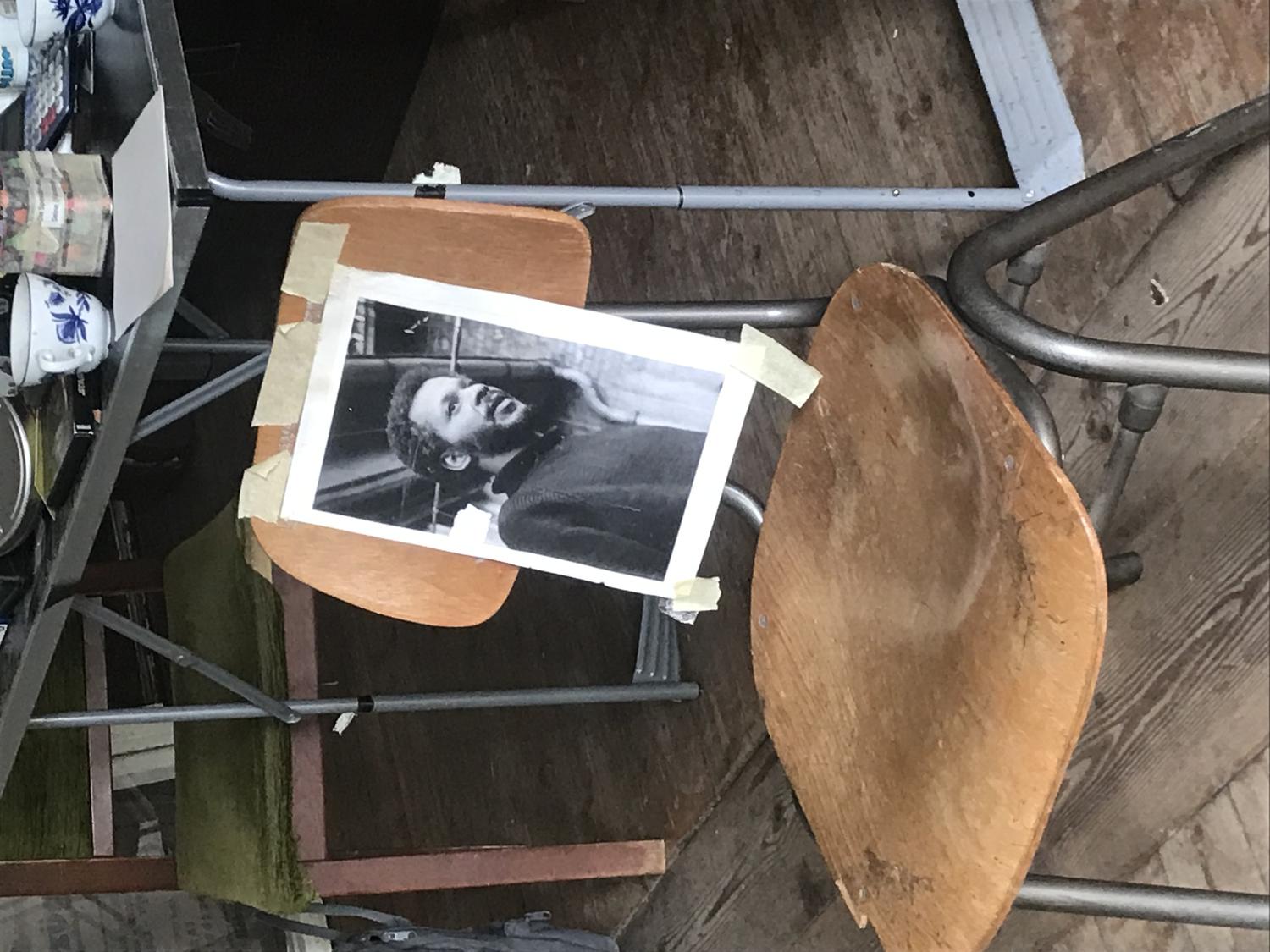
September 15–October 2, 2022
Participants: Artur Albrecht, Stefan Aue, Ann Cotten, Clémentine Deliss, Christian Filips, Lama El Khatib, Lee Plested, Vincent Sauer, Bonaventure Soh Bejeng Ndikung, Alper Turan, and Scott Watson
Presented by The Institute for Endotic Research and Kasper Theatre Rixdorf, and organized by Lee Plested and Alper Turan, The Bob Dorsey Project is a unique investigative program on the artist Bob Dorsey (1932-1994). Initiated to frame the production of this little-known African American painter, the project conceptualizes the organization of the artist’s estate, resurfaced now nearly three decades after Dorsey’s death. Life partner of Fassbinder actor Volker Spengler, Dorsey moved to Germany in the 1960s and produced extensive visual material. As of yet dates and titles for these works remain obscure to history.
Structured as a pre-encounter with this enigmatic artist and his legacy, this program consists of lectures, readings, and workshops intended to both contemplate methods for approaching his body of work and to make initial steps in engaging with this estate responsively. The Bob Dorsey Project is aiming to collectivize the knowledge production around artist Bob Dorsey while testing an open methodology to engage responsibly with the legacy of artists whose identities were historically marginalized and whose works, so far, have existed largely in the dark.
more here
RUNNING IN PLACE
Protocinema
Assistant Curator
Exhibition
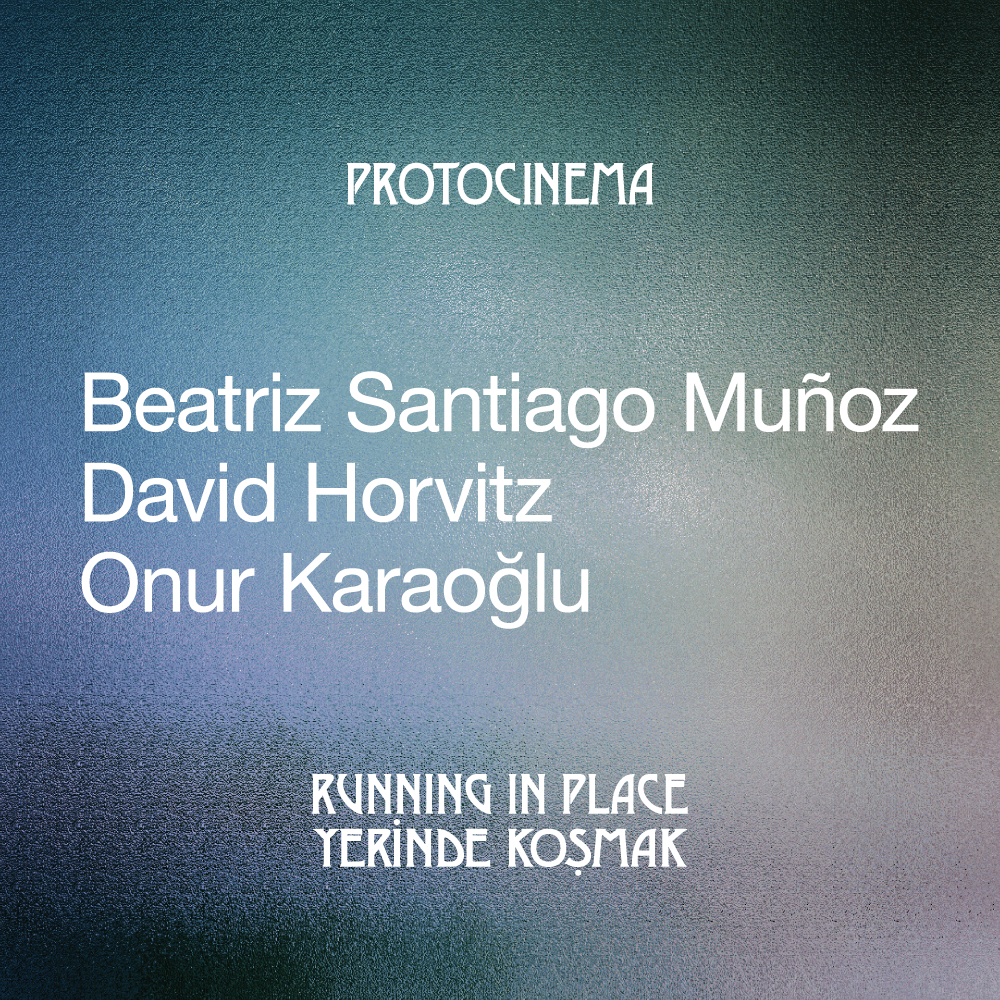
w Beatriz Santiago Muñoz, David Horvitz, Onur Karaoğlu
September 10 - October 29, 2022
Polat Piyalepaşa Çarşı, Istanbul
This exhibition convenes artworks on circulation of ideas, water and bodies along with their inherent contradictions. The artists in Running In Place occupy three positions - Santiago Muñoz’s is that of suspension, Horvitz’s of regulated mobility, and Karaoğlu’s of free-flowing forces of nature and imagination (...) more here
PROTODISPATCH
Protocinema
Assistant Curator
Digital publication
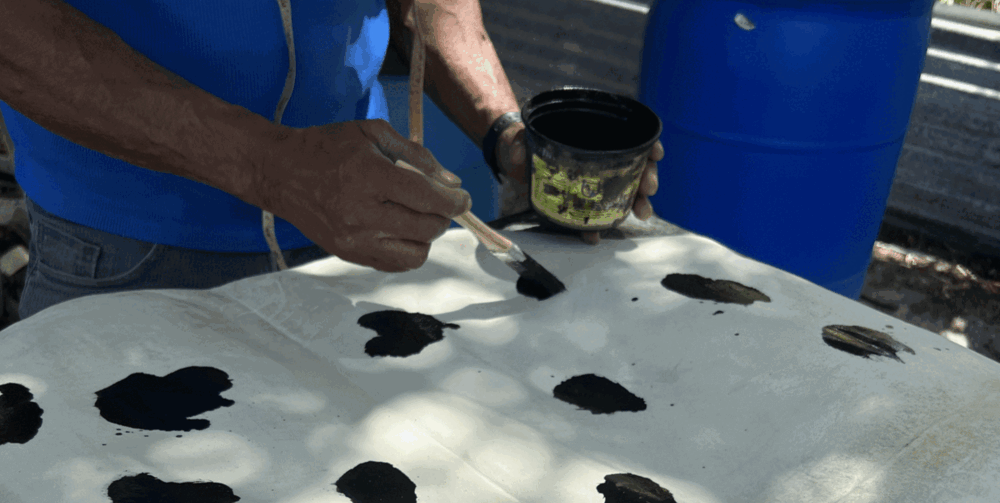
Protodispatch is a new digital publication featuring personal perspectives by artists addressing transcontinental concerns, filtered by where they are in the world. Conceived by Laura Raicovich, the initiative launched on September 14th with dispatches by Ximena Garrido/Ishmael Randal Weeks, Jorge González (with Angela Brown), Simone Leigh, Kenya (Robinson), and Tiffany Sia (with Emilie Sin Yi Choi and Chan Tze-Woon) (...)
more here
PICKLE BAR at WEINER FESTWOCHEN, Vienna
Slavs and Tatars & Wiener Festwochen Co-curator
Performance Programm

Concept, Design: Slavs and Tatars, Curated by Patricia Couvet, Anastasia Marukhina, Alper Turan. With performances by Selin Davasse, Onur Karaoğlu, Mai Ling, Veronika Merklein & Ela A. Sattler, Nora Turato.
15 May - 15 June, 2022
For the Wiener Festwochen, the international acclaimed artists’ collective Slavs and Tatars is opening a Pickle Bar. The Pickle Bar raises a glass (or two) to the close affinity betwPerformance Programeen speaking and eating, all the while celebrating the principle of hospitality. So, three cheers for fermentation! (...)
more here
ONCE UPON A TIME INCONCEIVABLE
Protocinema
Assistant Curator
Exhibition
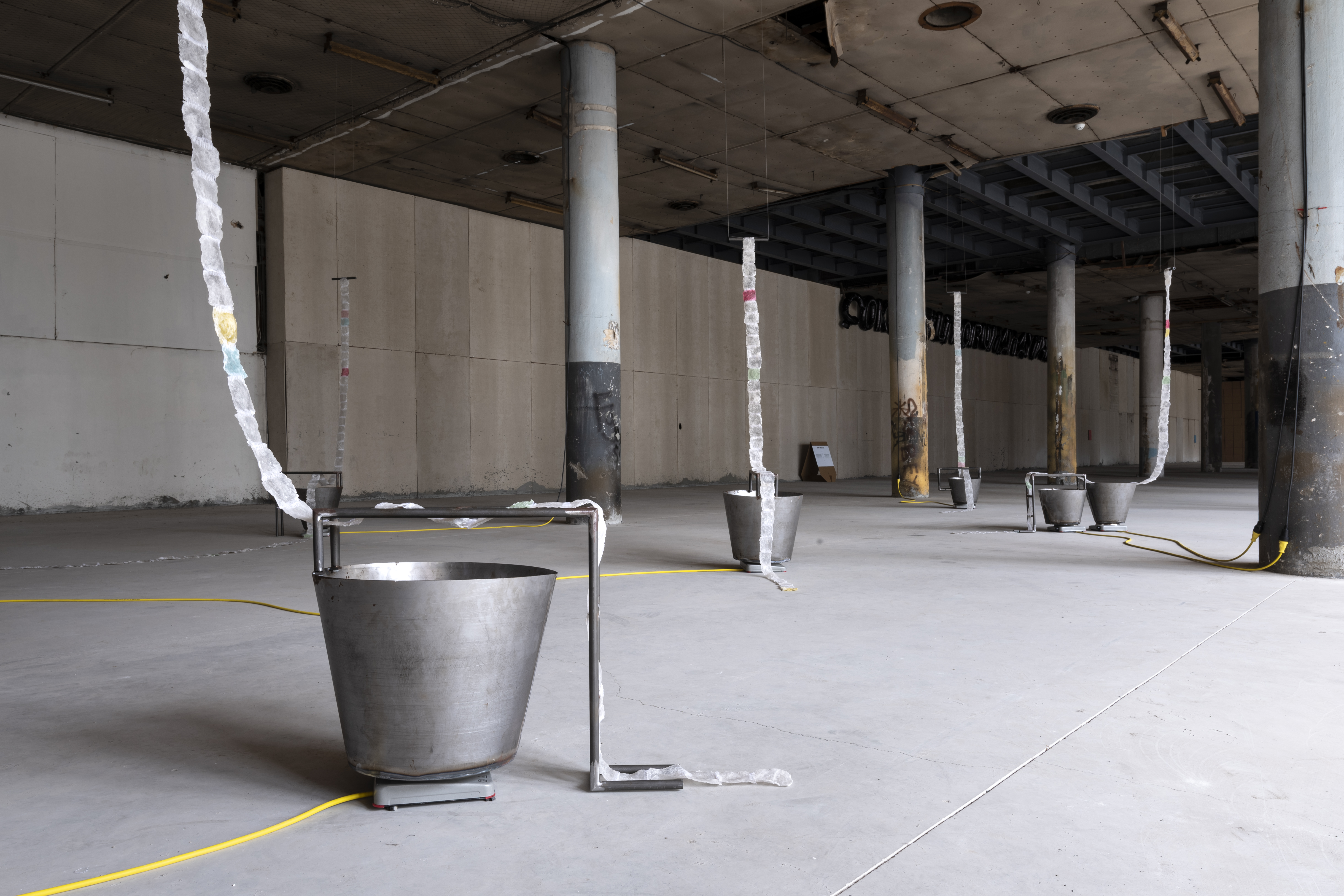


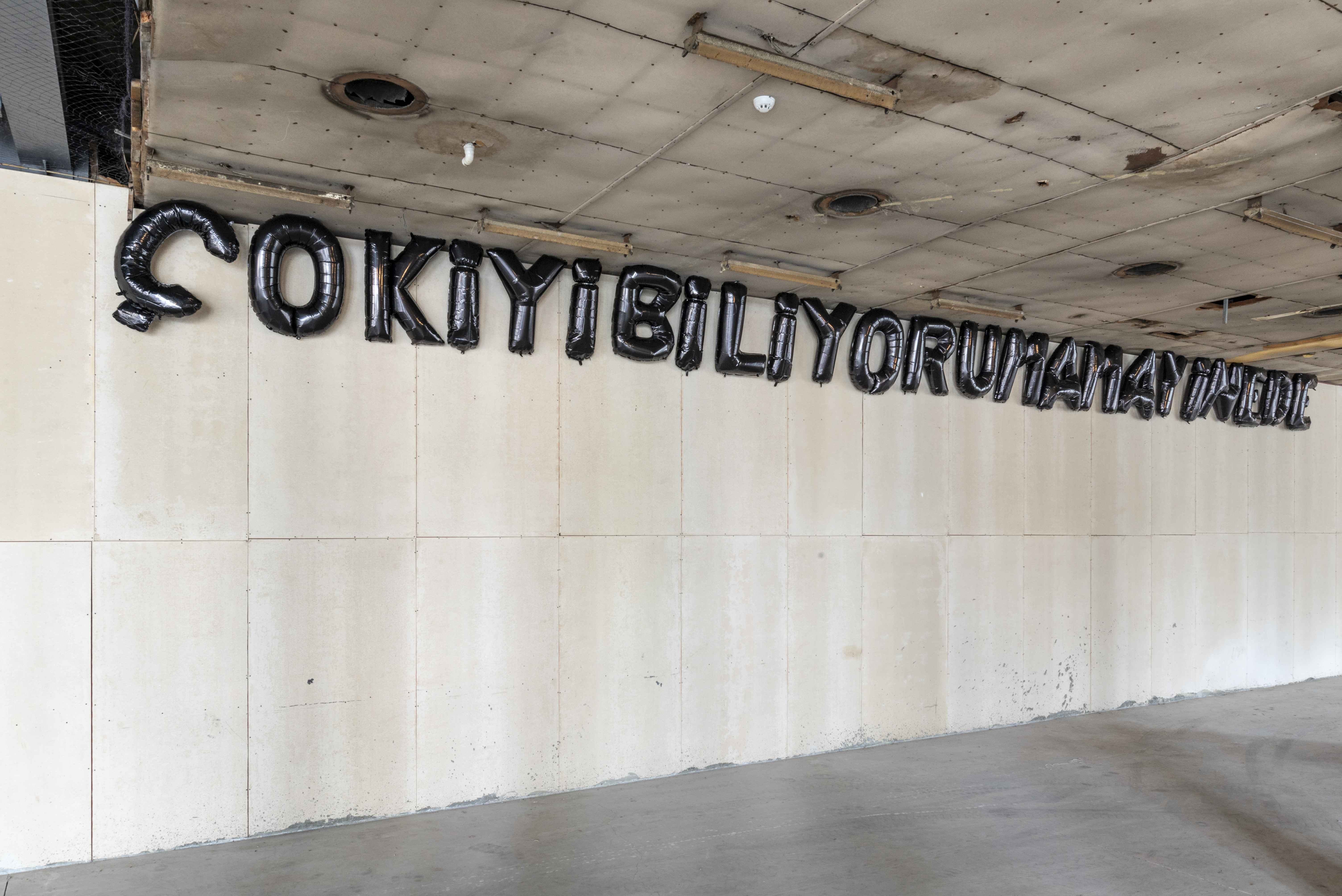
w Abbas Akhavan, Hera Büyüktaşçıyan, Banu Cennetoğlu, Ceal Floyer, Gülşah Mursaloğlu, Zeyno Pekünlü, Paul Pfeiffer, Amie Siegel, Mario García Torres
September 4 - October 10, 2021
Beykoz Kundura, İstanbul
Protocinema is happy to announce Once Upon a Time Inconceivable, a group exhibition on the occasion of our ten year milestone, cross-examining the pair of perception and realization; and their impairments in relation to time and space (...)
more here
Exhibition text written by Alper Turan, read here
A FEW IN MANY PLACES
Protocinema Multi-City Exhibition
Collaborator & Assistant Curator

w
Gahee Park, Gim Ikhyun, Miji Lee, Welcome to Ogasawara (Hyun Woomin, Min Guhong Manufacturing, Park Daham, Yuri An, Yun Choi), Komtouch Dew Napattaloong, Thanart Rasanon, Alper Turan, Zeynep Kayan, Kathryn Hamilton, Deniz Tortum, Lila Nazemian, Vartan Avakian, Kristine Khouri, Yasmine Eid-Sabbagh, Embajada, Taller Comunidad La Goyco, Jorge González Santos, Esvin Alarcón Lam, Antonio Pichillá, Camilla Juárez.
May 8- August 8, 2021
Seoul, Bangkok, Istanbul, New York, Santurce, Guatemala City
Co-curated by Mari Spirito and Abhijan Toto
more here
AIDS Means Eating Too Much Candy
Collective Speculation Workshop on A World Without AIDSconceived and coordinated by Julien Ribeiro and Alper Turan
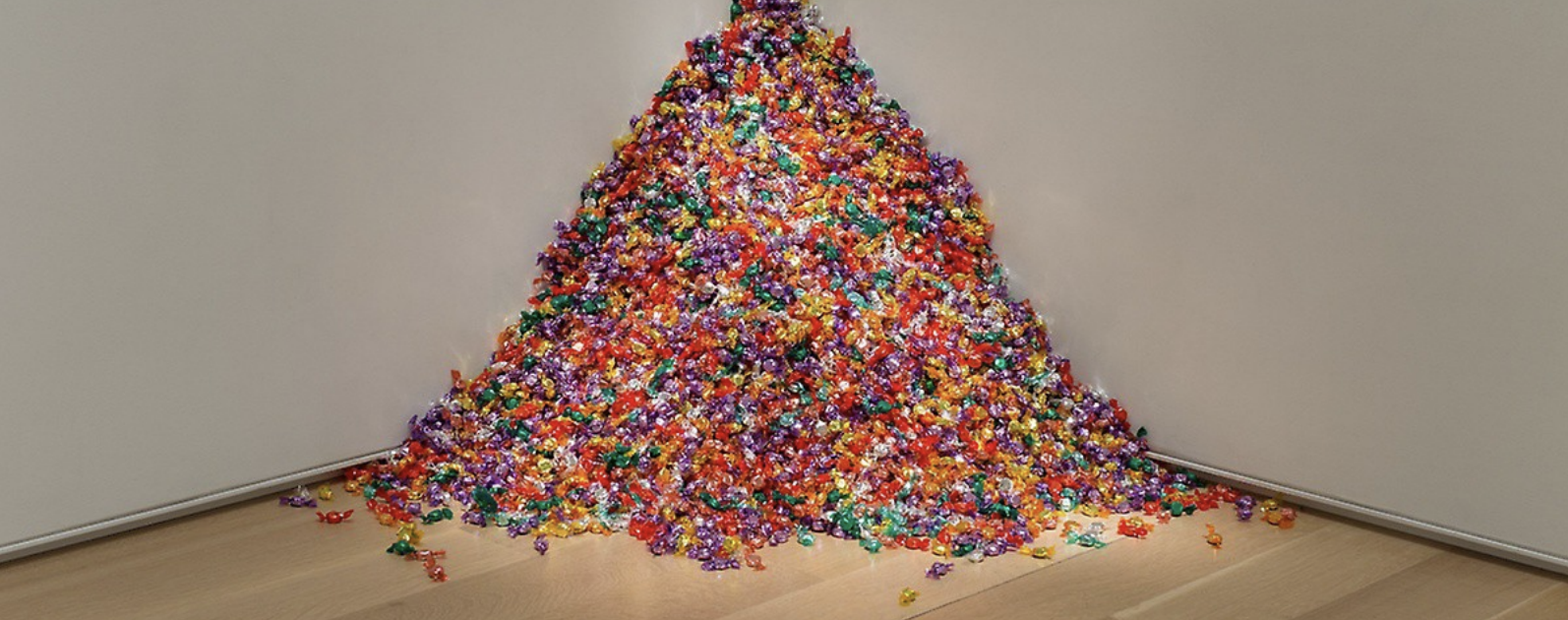
AIDS Means Eating Too Much Candy: Collective Speculation Workshop on A World Without AIDS workshop is a 4-5 days-long creative workshop designed for artists, art school students, queer folks and people affected by HIV/AIDS. Coordinated by Julien Riberio (FR) and Alper Turan (GE-TR), two contemporary art curators and HIV&AIDS activists, the workshop sets of with the question: What If AIDS never happened? and the workshop will be composed of presentations, discussions and educational program as well as collaborative speculative and creative process. The workshop takes influential artist Felix Gonzales Torres who prematurely died of AIDS in 1996 and his practices as points of references, invites participants to re-write the recent history and queer genealogy while re-interpreting and re-making Torres’ works.
Let’s imagine Félix González-Torres is still with us, 64 years old now and getting ready for an exhibition in 2021. Let’s imagine there has been no AIDS around in the last forty years.
The AIDS crisis is here and now; it was not over in 1996 nor is it in 2021, maybe it will never be. If not a lethal threat, a stigmatiser, a dependency-maker on pharmaceuticals - as it is for many of us around the world; it is an inter-generational and cross-national trauma any one of us is immune to. We, the queers as fluid epistemological categories, are the byproducts of AIDS and we are still living underthe shadow of its immense presence. Formative of today’s sexual subjectivities, intimacies, normativities (you can call identities), what’s queer after 80s is always marked with AIDS.
This workshop sets out with the question impossible to answer without speculation: What If AIDS never happened?
What would contemporary queer be inheriting from the past generations? What would have happened if they hadn’t been wiped out?
What would silence, shame, fear, loss, grief, mourning have meant? What would have pride, activism, community and care entailed?
What would have been the breaking point in international queer historiography which urges already separated and codified sexual
identities to come together? Would we still fight for public recognition, basic human rights and legislative power and against
discrimination and violance? Would we be deemed to be in the closet of eternity? What would have been needed for making a queer
subjectivity? Or whether homonormativity, homonationalism, institutionalisation and instrumentalization of queer would still be the case?
Or how would we define ourselves and how would we fight for in 2021?
This workshop taking queer perspective and using Félix González-Torres’s modes of operation as a point of reference and practical tool to collectively speculate on a contemporary world where AIDS had never been the case. Through decoding and investing in further potentials of Torres’s practice, participants will jointly impersonate Torres and produce in name of him while fictionalise his lifetime as well as an alternative queer timeline and queer art history.
Crack Up Crack Down
Slavs and Tatars at U–jazdowskiOnline film program
Co-curator

Why satire? Why not? was a good place to start for the Crack Up, Crack Down. Now, months after the end of the exhibition, we want to go back to the question and ask another one: What comes after satire? If satire is the genre of sour times, what happens when satire is no longer sufficient: when we’ve moved beyond the acidic to the bitter and dyspeptic? A successor to satire then, in our proposition, would be to envision alternative world-makings. Satire, with its sharp language and explicit message, always speaks from and to contemporary issues of the people.’ Nevertheless, satire’s orbit of temporality can enlarge and stretch to the past to make a revision of it, or, alternatively, to the future to better envision it. In this film program–an extension of our curatorial endeavor in the intersection of graphic and satire–we aim to bring together movies that skewer societal norms and thereby suggest other ways of being
A genre-blending classic, Tongues Untied (1989) by Marlon Riggs constitutes a response to the eradication of queer lives from recorded history while telling both everyday struggles of black homosexual experiences and the collective coping strategies of the 80s which resonate today. Maggots and Men (2009) by Cary Cronenwett is a utopian re-visioning of post-revolutionary Russia through the story of the 1921 uprising by Kronstadt sailors with a twist of gender anarchy, featuring film history's first cast of over 100 transgender actors. Queer in Space: Kollontai Commune (2015) by School of Theory and Activism, Bishkek (STAB) makes a historical intervention with the archive of the Kollontai commune, a queer communist collective based in Frunze (now Bishkek) in the 1970s, radically revising our conception of the political and gender dissident in the late Soviet Union. Oksana Kazmina parodies the present with a female superhero Fabulous Squirt (2019) who turns right-wing nationalists into adorable My Little Ponies. Narrating a parodic re-education, Bruce LaBruce’s terrorist-chic cult-classic The Raspberry Reich (2004) is a utopic counter-nostalgia of sexual revolution where a group of left-wing terrorists kidnaps the son of a wealthy industrialist, emancipating the potential of queerness. Jessica Dunn Rovinelli’s So pretty (2020) is adapted and translated from a 1980s German novel by the gay communist author Ronald M. Schernikau, who died of AIDS. The movie tells the story of four young queers struggling to maintain their proto-utopian community against the outside world as their lives curiously merge with the novel. Heaven (2016) by Luiz Roque para-fictionalizes the year 2080, a decade after the discovery of AIDS, the time when the Epstein-Barr virus became much more violent, troubling the future with riveting sociopolitical knots. But Everyone Else Was Crying (2020), Krzysztof Bagiński’s new film, an adaptation from a Czech folktale, tells a dystopian story in which the death of a mouse leads to a chain of self-destruction amongst animate and inanimate beings, shows along the way how damage is often cumulative and collective.
more here
A call for an Action: Queer Intervention
Collective Intervention
In 2018, taking inspiration from the Istanbul Pride Committee's decision to disperse the banned pride march into every corner of the city, I e-mailed every art institution in Istanbul and asked them to queer their programs during pride week. While initiating, demanding, dispersing, and pushing the action, I was simultaneously collecting the institutions’ understandings of ‘queer’ without being the authority on its definition. Galleries and art institituions responded to the project and staged anonymous interventions.
HIVstories: Living Politics
ExhibitionCo-curator
dramaqueer, Istanbul, Turkey
14. March 2020 – 11. April 2020
Biennale Warszawa, Warszawa, Poland
31. January 2020 – 01. March 2020
Schwules Museum, Berlin, Germany
13. September 2019 – 11. November 2019
Curators: Emily Jay Nicholls, Noora Oertel, Todd Sekuler, Justyna Struzik, Zülfikar Çetin, Alper Turan
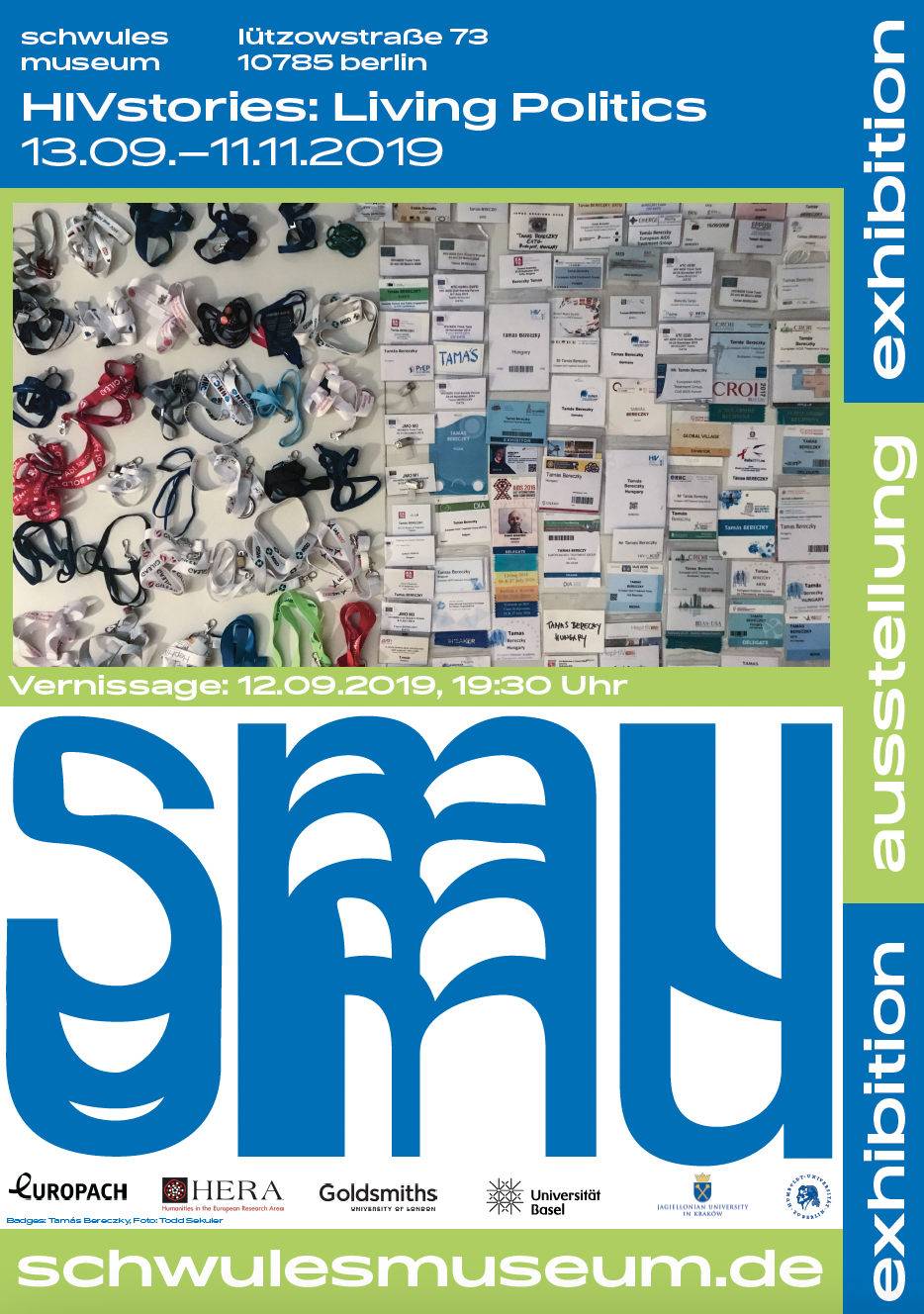
How are politics and life narratives in the fields of HIV/AIDS activism entangled? This exhibition explores different ways of living politics from the perspectives of a variety of countries, communities and regions. It focuses on the ways in which lives are shaped by politics, and politics are shaped by lives in Poland, United Kingdom, Turkey, Germany and on the European level.
The World Health Organisation has identified Europe as a region with the fastest growing HIV epidemic in the world. While the impact and spread of the virus unfolds differently and unevenly across the region, it has evoked multiple responses from civil society, religious institutions and European states and governing bodies. A multiplicity of lives and politics demonstrates that the fight against HIV/AIDS cannot be recounted as a single coherent story. Instead, it is presented here as an ongoing struggle with many disparities and a-synchronicities - all of which take on unique expression in each political, legal and social context. Taken together, HIVstories offers a glimpse into the complex, creative and at times contradictory dynamics of HIV/AIDS activism across the region. It reveals Europe as a historically shifting, disputed, and dynamic geographic, social and political entity.
The exhibition is made up of objects that have been collected over the course of a three-year international research project. Disentangling European HIV/AIDS Policies: Activism, Citizenship and Health (EUROPACH) explores how narratives of the past continue to impact the unfolding of the epidemic. Researchers from Kraków, London, Berlin and Basel, in collaboration with a great many community partner organisations, collected artefacts, archival documents and art works, and conducted oral history interviews with activists, advocates, politicians, bureaucrats and medical practitioners. These lively materials evoke only some of the multiple lives and faces involved in the struggle against HIV/AIDS in the European region. The excerpts from life narratives as presented here, and many more, are part of the European HIV/AIDS Archive.
more here
Das Art Projects
Das Art Project, founded by Çisem Asya Albaş, Oğulcan Haşlaman and Alper Turan in 2016, was a curatorial collective that produced 4 site-responsive projects in İstanbul and dissolved in 2018.
Working with young generation local artists, we were organizing exhibitions in historically and culturally-significant buildings of Istanbul, with the purpose of reutilizing these urban heritages and preparing ephemeral exhibitions by taking our subject-matters from buildings’ spatial, historical and political specifics in radically gentrified İstanbul.
We saw the exhibition spaces upon which we constructed the theoretical frame of exhibitions, we exhibited the
buildings itself which were not accessible by public before.
Halil Altındere: WELCOME TO HOMELAND
Pilot Gallery![]()
Exhibition
Co-curator (Das Art Project)
14 September 2017 - 21 October 2017
"Welcome to Homeland" brings together Halil Altındere’s multidisciplinary works focusing on the “refugee crisis” that haven't been exhibited in Istanbul. The exhibit provides an inclusive frame for the refugee crisis by using two axes of narrative that are constructed by the two refugee figures who turn into heroes, in fact, superheroes. Their stories get fictionalized with Altındere’s phantasms that manifest themselves differently each time, never losing touch with the bitter reality.
more here![]()
![]()
![]()
![]()
![]()
GENETICALLY MODIFIED
Bahar, off-site exhibition of 13th Sharjah Biennial: Tamawuj![]()
Exhibition
Co-curator (Das Art Project.)
13 May—10 June 2017
with Can Küçük, Beril Ece Güler, Bora Olgunsoy, Güssol, Tarık Töre, Muhittincan, Uygar Demoğlu
Can the apple fall far from the tree? And can apples and oranges mix? If we add a minaret to a church and a box office to a mosque, would that church be a mosque and that mosque be a museum? Can you create feelings in a laboratory? If you were gifted powdered milk, could you turn it down? Would Hitler be against GMO? Are transformations organic or just changes with predetermined rules? What do we carry in our seeds? Possibilities, illnesses or the looks of our faces? Are the polycephalic children the product of polytheism against nature? Whose history is manifested when we manipulate, protect or leave history be? Is the artificial against the natural, or is it a consequence? When we go underground do we find a germinating seed, or a venomous army getting prepared for the harvest of the next century, or another period under seal? Are we a sum of all the things injected to us?
more here![]()
![]()
![]()
![]()
![]()
![]()
![]()
DECADENCE
Pera Palace Hotel
Exhibition
Co-curator (Das Art Project.)
15-20 March 2017
with Ozan Atalan, Burak Ayazoğlu, Ünal Bostancı, Ayçesu Duran,Beril Gülcan, Onur Karaoğlu, Hakan Kırdar, Muhittincan, Öner Taylan Öztürk, Koral Sagular, Sena
Pera Palas became a symbol of western orientalism and Ottoman westernization in 1895 when it first opened, and has changed with its surroundings within 125 years. Today, as a part of a chain of Dubai-originated hotels, it still keeps up with 2010’s Beyoglu. Whatever happens outside, the entertainment in the ballroom continues. “Decadence” exhibition aims to establish parallelism between the two periods in which the face of the country returns to the west and east with a sharp turn. 11 artists present topics on today's collapse, starting with references from cult guests of the hotel or from the personal history of the hotel. The productions of the artists spread throughout the ballroom of Pera Palace, Grand Pera; and it ends in the 411-numbered sensational suite of Agatha Christie.
When the Orient Express started its Paris-Istanbul line service, there were no hotels in Istanbul that could meet the standards of the Western guests, so the owner of the Express established Pera Palace, throwing first seeds of liberal economy in Istanbul. With this hotel, the travelers could feel like they were home and talk about orientalism, without being exposed to the realities of the country. The hotel—which was the first building, other than the Ottoman palaces, that was supplied electricity—lit up the dark streets and the dark period as a beacon of Turkish modernism and westernization. The ballroom hosted the country’s first painting exhibition, first fashion show and innumerable receptions. Throughout its history, Pera Palace witnessed the fall of an empire, formation of a new country, and the course of the new republic. As the faces and appearances of the guests changed, the hotel kept its characteristics. The Palace gathered writers, first ladies, emperors, directors, presidents, secret agents, dancers and actors that passed through Turkey’s historical landscape under its roof, all the while enriching its story and always painting an immersive scene. In this magnificent building, the artwork around“cult” figures that Pera Palace has hosted in its most luminous era, along with the lives of these figures and the personal history of the hotel, will be investigated to examine the decadence of today.
![]()
![]()
![]()
![]()
![]()
![]()
![]()
![]()
OXYTOCIN
Haydarpaşa Dikimevi, Muhaccir Misafirhanesi
Exhibition
Co-curator (Das Art Project.)
14-15 October 2016
w Arif Akdenizli, Anonym, Burak Apaydın, Burka Bayram, Meriç Canatan, Eser Çoban, Kıymet Daştan, Derya Dinç, Epitel, Mert Gafuroğlu, Beril Ece Güler, Güssol, Deniz Kaprol, Nazlı Khoshkhabar, Can Küçük, Ufuk Barış Mutlu, Ezgi Nalçacı, Bora Olgunsoy, Begüm Tekay, Tarık Töre, Ayça Türkmen, Gülçin Uzun, Merve Özçelik, Vardal Caniş Su, Gizem Ünlü, Oytun Yılmaz
"Oxytocin: Experiments on Trust" is an exhibition project took place in a derelict building used for a public event for the first time. For the exhibition, 26 young artists produced new artworks on the theme of "güven" (which can be translated as confidence, trust, dependence etc.). Mimar Kemaleddin's (Kemaleddin the Architect) one of the early works in 1900s, the Guesthouse of Immigrants, located in the Haydarpaşa train station area, hosts the exhibition. In order to emphasize this hospitality and the "ephemera", the exhibition which spreads over two floors of the building remains open just for one day.![]()
![]()
![]()
![]()
![]()
